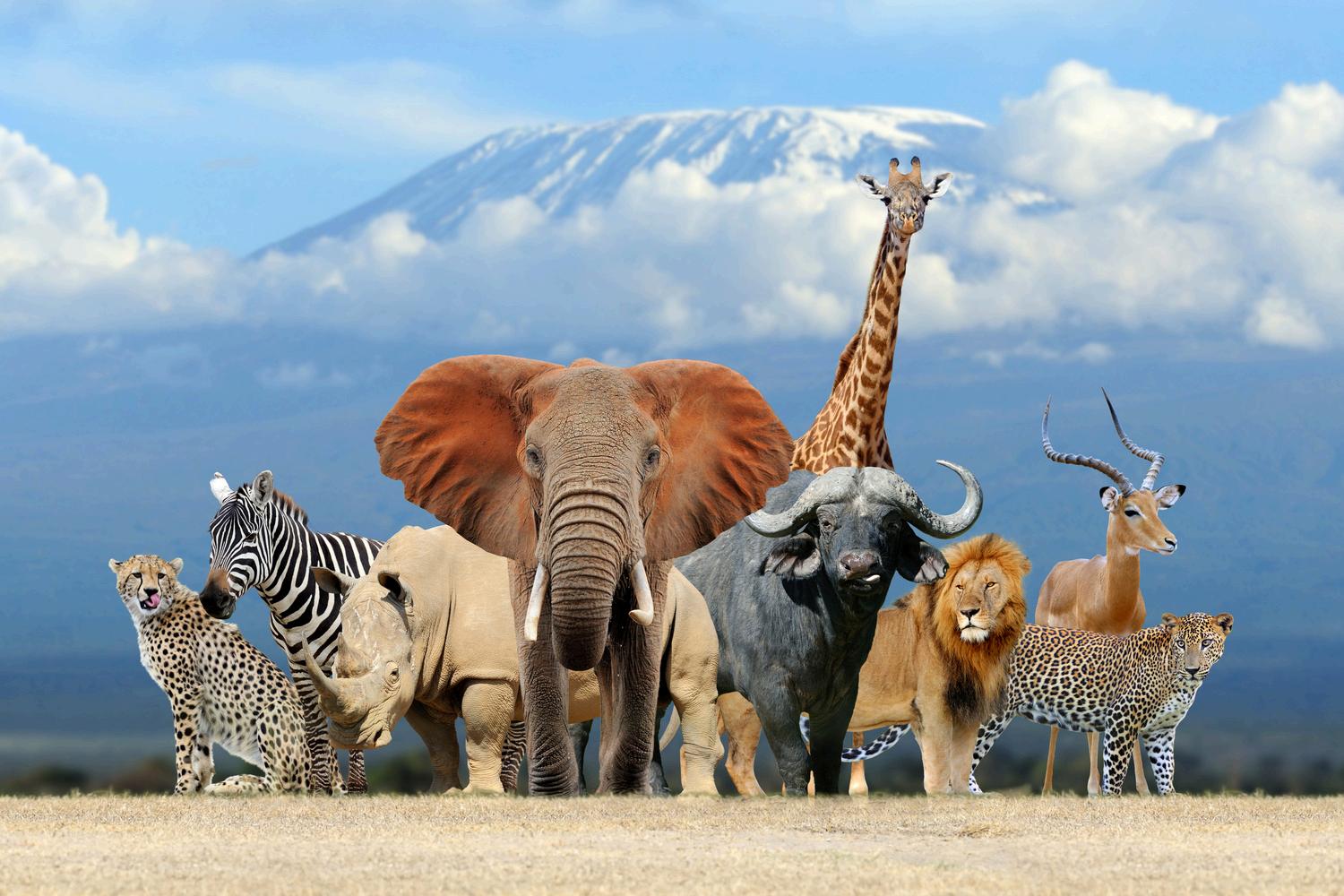




Students must earn the following credits in the following areas and subjects in order to graduate.
Language Arts
Mathematics
Lab Science
Other Science
Social Studies
Health
Physical Education
Second Language, The Arts, and Career & Technical Ed
Career Education-includes Sr. Capstone
Electives
TOTAL
Students must also demonstrate proficiency in Oregon’s Career Related Learning Standards via tasks assigned in their Career Education courses.
Language Arts 9 A/B
Grade:
9
Students earning a standard diploma will complete 4.0 credits (four years) of Language Arts. Students take the following courses in order from ninth to twelfth grade: Language Arts 9, Language Arts 10, Language Arts 11 and Language Arts 12. Students may take Honors, Advanced Placement or Foundations courses as substitutes.
Language Arts 10 A/B
Grade:
10
0.5/0.5
Prerequisites: Offered:
None
Prerequisites:
Offered:
Credits: Other Info:
0.5/0.5
None
Fall/Spring
Foundations and Honors versions available
LA 9 builds upon students’ prior knowledge of grammar, vocabulary, word usage, and the mechanics of writing and emphasizes the four aspects of language: reading, writing, speaking, and listening. The course defines various genres/themes, with writing exercises often linked to reading exercises.
Language Arts 11 A/B
Grade:
11
Credits: Other Info:
Fall/Spring
Foundations and Honors versions available
LA 10 offers a balanced focus on composition and literature and learn about the alternate aims and audiences of written compositions by writing persuasive, critical, and creative essays and compositions. Students will improve their reading rate and comprehension and develop the skills to determine the author’s intent and theme and to recognize the techniques used to deliver their message.
AP Literature & Composition A/B
Grade:
11-12
0.5/0.5
Prerequisites:
Offered:
Credits: Other Info:
0.5/0.5
None
Fall/Spring
Foundations and Honors versions available
LA 11 continues to develop students’ writing skills, emphasizing logical patterns, word choice, and usage. Students will learn techniques of writing research papers. Students will read literature by a diverse, representative set of voices, which may form the backbone of writing assignments. Literary conventions and stylistic devices may receive greater emphasis than in previous courses.
Language Arts 12 A/B
Grade:
12
0.5/0.5
Prerequisites:
Offered:
Credits: Other Info:
None
Fall/Spring
Foundations and Honors versions available
LA 12 blends composition and literature into a cohesive whole as students write critical and comparative analyses of literature, continuing to develop their skills. Typically, students primarily write multi-paragraph essays, but they may also write one or more major research papers.
Prerequisites:
Offered:
Credits: Other Info:
LA 10, A level work or counselor approval
Fall/Spring
College Credit
This course is designed to parallel collegelevel English courses and will enable students to develop critical standards for evaluating literature. Students study the language, character, action, and theme in works of recognized literary merit; enrich their understanding of connotation, metaphor, irony, syntax, and tone; and write compositions of their own (including literary analysis, exposition, argument, narrative, and creative writing).
AP Language & Composition A/B
Grade:
12
0.5/0.5
Prerequisites:
Offered:
Credits: Other Info:
LA 11, A level work or counselor approval
Fall/Spring
College Credit
This course is parallels college-level English courses, exposes students to a variety of periods, disciplines, and rhetorical contexts. The course emphasizes the interaction of authorial purpose, intended audience, and the subject at hand. Students will develop stylistic flexibility as they write. Highly recommended to take AP Lit before this class
Algebra 1A Parts 1 & 2
Grade:
Credits:
Prerequisites:
Offered:
Other Info:
9, 10, 11, 12
0.5/0.5
None
Fall/Spring
Algebra I courses include the study of properties and operations of the real number system; evaluating rational algebraic expressions; solving and graphing first-degree equations and inequalities; translating word problems into equations; operations with and factoring of polynomials; and solving simple quadratic equations.
Grade:
Credits:
Prerequisites:
Offered:
Other Info:
9, 10, 11, 12
0.5/0.5
None
Fall/Spring
Honors version avail.
Algebra I courses include the study of properties and operations of the real number system; evaluating rational algebraic expressions; solving and graphing first-degree equations and inequalities; translating word problems into equations; operations with and factoring of polynomials; and solving simple quadratic equations.
Students earning a standard diploma will complete at least 3 0 credits of Mathematics at or above Algebra 1 For non-ASCEND students, the first 2 0 of these credits will cover Algebra 1, Geometry, and Data Science ASCEND students' first 2 0 credits will be Integrated I and Integrated II The 3rd and beyond credits are taken from the mathematics electives section and chosen based on postsecondary plans and interests
Algebra 1B Parts 1 & 2
Grade:
9, 10, 11, 12
0.5/0.5
Prerequisites:
Offered:
Credits: Other Info:
Alg 1A
Fall/Spring
Algebra I courses include the study of properties and operations of the real number system; evaluating rational algebraic expressions; solving and graphing first-degree equations and inequalities; translating word problems into equations; operations with and factoring of polynomials; and solving simple quadratic equations.
Grade:
Credits:
Prerequisites:
Offered:
Other Info: Geometry I
9, 10, 11, 12 0.5
Algebra 1 Fall
Honors version avail.
Geometry emphasizes an abstract, formal approach to the study of geometry. The course tends to focus on topics such as properties of plane and solid figures; deductive methods of reasoning and use of logic; geometry as an axiomatic system including the study of postulates, theorems, and formal proofs; concepts of congruence, similarity, parallelism, perpendicularity, and proportion; rules or properties of triangles; and angle measurement in triangles.
Data Science I
Grade:
Credits: Other Info:
9, 10, 11, 12 0.5
Prerequisites:
Offered:
Alg 1 & Geom 1
Spring
Honors version avail.
Taken as part of your first two years of high school math, in this course students will learn to understand, ask questions of, and represent data through application of probability, statistics, and critical thinking.
Integrated Math Applications A/B
Grade:
Credits:
Prerequisites:
Offered:
Other Info:
9, 10, 11, 12
0.5/0.5
Alg 1 & Geometry 1
Fall/Spring
College Credit
This course is intended for students who have taken Algebra I and Geometry, but do not wish to study Algebra II. This course emphasizes proficiency in understanding of applications in the real world. Focus is on understanding functions, solving financial problems on loans and investments, exploring art and architecture with geometry, analyzing arguments with logic and critical thinking, interpreting data displays and scientific studies found in various media, and developing an appreciation of numerical and mathematical history
Precalculus A/B
Grade:
Credits:
Prerequisites:
Offered:
Other Info:
9, 10, 11, 12
0.5/0.5 Algebra 2
Fall/Spring
College Credit
Precalculus courses combine the study of Trigonometry, Elementary Functions, Analytic Geometry, and Mathematical Analysis topics as preparation for calculus. Topics typically include the study of complex numbers; polynomial, logarithmic, exponential, rational, right trigonometric, and circular functions, and their relations, inverses and graphs; trigonometric identities and equations; solutions of right and oblique triangles; vectors; the polar coordinate system; conic sections; Boolean algebra and symbolic logic; mathematical induction; matrix algebra; sequences and series; and limits and continuity.
Students earning a standard diploma will complete at least 3 0 credits of Mathematics at or above Algebra 1 For non-ASCEND students, the first 2 0 of these credits will cover Algebra 1, Geometry, and Data Science. ASCEND students' first 2.0 credits will be Integrated I and Integrated II. The 3rd and beyond credits are taken from the mathematics electives section and chosen based on postsecondary plans and interests.
Grade:
Credits:
Prerequisites:
Offered:
Other Info: Algebra 2 A/B
9, 10, 11, 12
0.5/0.5
Alg 1, Geom, Data Sci
Fall/Spring
Honors version avail.
Algebra II course topics may include field properties and theorems; set theory; operations with rational and irrational expressions; factoring of rational expressions; in-depth study of linear equations and inequalities; quadratic equations; solving systems of linear and quadratic equations; graphing of constant, linear, and quadratic equations; properties of higher-degree equations; and operations with rational and irrational exponents.
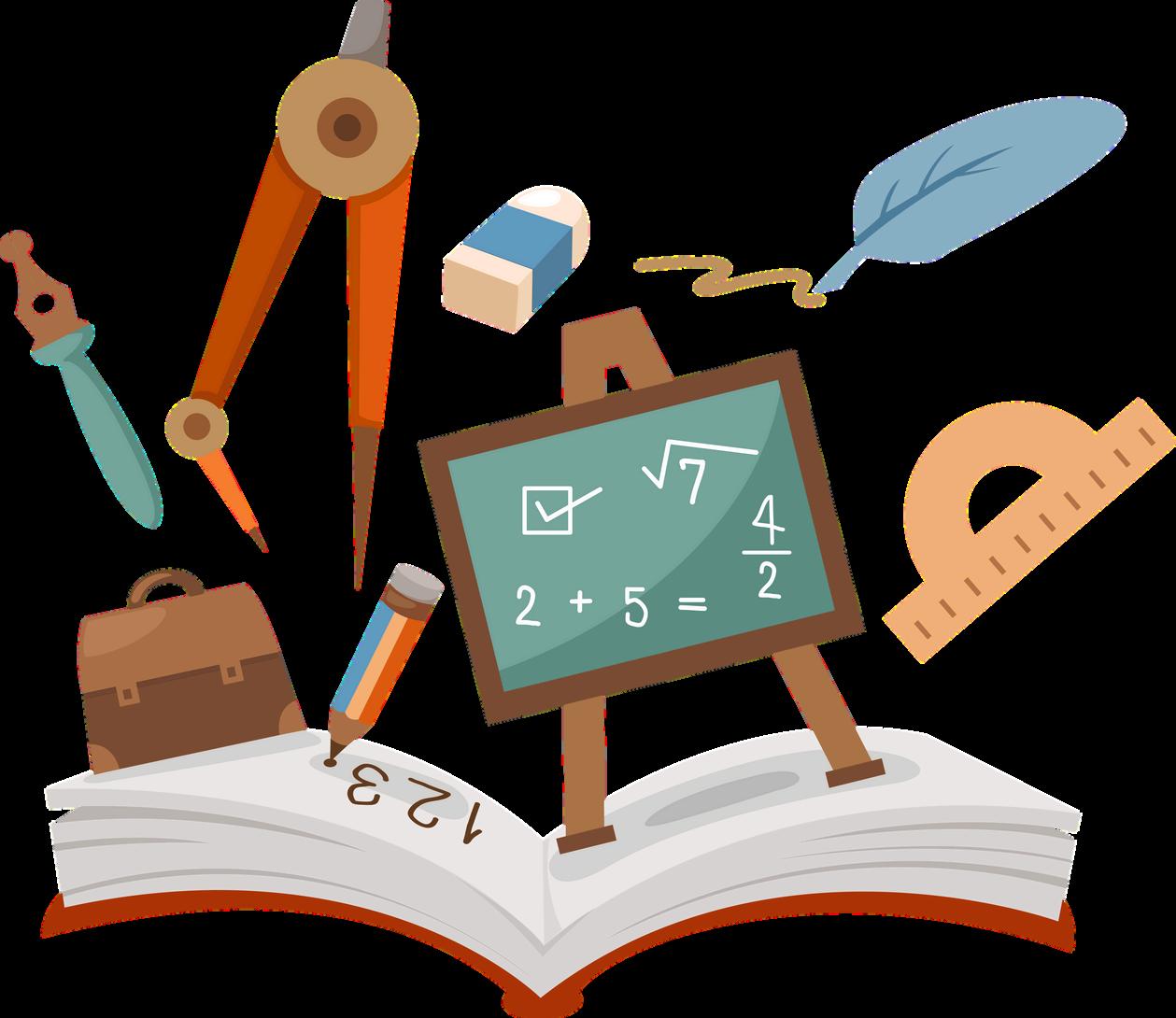
Statistics A/B
Grade:
9, 10, 11, 12
Students earning a standard diploma will complete at least 3 0 credits of Mathematics at or above Algebra 1 For non-ASCEND students, the first 2 0 of these credits will cover Algebra 1, Geometry, and Data Science. ASCEND students' first 2.0 credits will be Integrated I and Integrated II. The 3rd and beyond credits are taken from the mathematics electives section and chosen based on postsecondary plans and interests.
AP Statistics A/B
Grade:
9, 10, 11, 12
0.5/0.5
Prerequisites:
Precalculus, A level work, and/or teacher approval
Prerequisites:
Offered:
Credits: Other Info:
0.5/0.5
Geometry
Fall/Spring
This course introduces the study of likely events and the analysis, interpretation, and presentation of quantitative data. Course topics generally include basic probability and statistics: discrete probability theory, odds and probabilities, probability trees, populations and samples, frequency tables, measures of central tendency, and presentation of data (including graphs). Course topics may also include normal distribution and measures of variability.
AP Calculus A/B
Grade:
Credits:
Prerequisites:
Offered:
Other Info:
9, 10, 11, 12
0.5/0.5
Precalculus, A level work, teacher approval
Fall/Spring
College Credit
Following the College Board’s suggested curriculum designed to parallel college-level calculus courses, AP Calculus AB provides students with an understanding of the concepts of calculus and experience with its methods and applications. These courses introduce calculus and include the following topics: functions, graphs, limits, and continuity; differential calculus (including definition, application, and computation of the derivative; derivative at a point; derivative as a function; and second derivatives); and integral calculus (including definite integrals and antidifferentiation).
Credits: Other Info:
Offered:
Fall/Spring
Following the College Board's suggested curriculum designed to parallel college-level statistics courses, AP Statistics courses introduce students to the major concepts and tools for collecting, analyzing, and drawing conclusions from data. Students are exposed to four broad conceptual themes: exploring data, sampling and experimentation, anticipating patterns, and statistical inference.
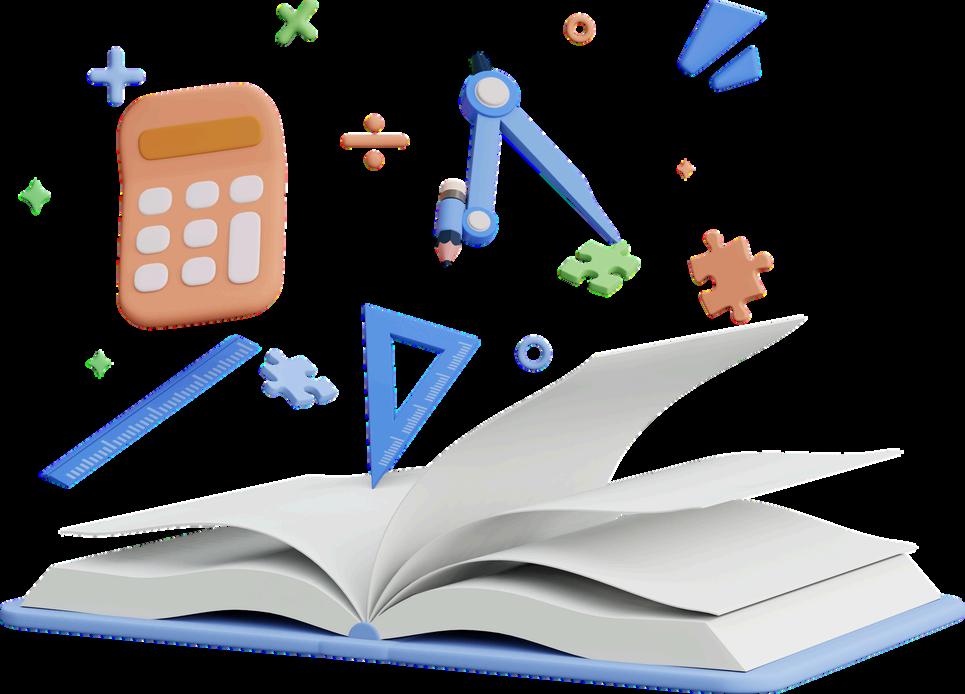
Physics A/B
Grade:
Credits:
Prerequisites:
Offered:
Other Info:
9, 10, 11, 12
0.5/0.5
None
Fall/Spring
Honors version avail. Includes lab
Physics explores how different types of energy and forces make everything in the universe work. Examine the people, sports, animals and machines around you to explain how energy can be transferred in motion, temperature change, chemical bonds, waves and electricity.
Environmental Science A/B
Grade:
10, 11, 12
Students earning a standard diploma will complete at least 3 0 credits of Science, at least 2 0 of which are Lab (L) Science All students typically take Physics 1 (Physical Science prior to 2021-22), Biology, and either Environmental Science or Chemistry in their first three years Students may take additional science electives Students may take Honors or Advanced Placement where available
Biology A/B
Grade:
10, 11, 12
0.5/0.5
Prerequisites:
Offered:
Credits: Other Info:
None
Fall/Spring
Honors version avail., Includes lab
Biology is the study of life and life processes. Semester 1 will focus on life at the cellular level with topics such as: cell biology, photosynthesis & cellular respiration, protein synthesis, genetics, inheritance and biotechnology. Semester 2 will look at life on a larger scale with topics such as: living things, evolution, population genetics, ecology and human impact on the environment.
Prerequisites:
Offered:
Credits: Other Info:
0.5/0.5
None
Fall/Spring
Includes lab
Examine how humans influence our natural environment. Learn how all life on earth is connected. Consider how our choices have both direct and indirect impacts on Earth and the species that live upon it. Learn about how we can all contribute to a more prosperous and sustainable planet for all of its inhabitants.
AP Environmental Science A/B
Grade:
Credits:
Prerequisites:
Offered:
Other Info:
11, 12
0.5/0.5
Biology, A level work, teacher approval
Fall/Spring of 25-26
Offered alternating years
Examine how humans influence our natural environment. Consider how our choices have both direct and indirect impacts on Earth and the species that live upon it. This is an Advanced Placement (AP) Environmental Science course designed to meet the learning objectives and science practices outlined by the College Board, which will prepare students for the AP Environmental Science exam.
Chemistry A/B
Grade:
10, 11, 12
0.5/0.5
Prerequisites:
Offered:
Credits: Other Info:
Algebra 1, Physics I
Fall/Spring
Honors version avail., includes lab
Chemistry involves studying the composition, properties, and reactions of substances. This includes such concepts as: the behaviors of solids, liquids, and gases; acid/base and oxidation/reduction reactions; and atomic structure. Chemical formulas and equations and nuclear reactions are also studied. Recommended for college bound students
Astronomy
Grade:
Anatomy & Physiology A/B
Grade:
11, 12
0.5/0.5
Prerequisites: Offered:
Credits: Other Info:
Biology Fall/Spring
College Credit, includes lab, for NCAA this doesn't count for lab
Anatomy and Physiology introduces students to basic anatomy and physiology of animals with an emphasis on humans. Focus is placed on tissues, organs, organ systems, and how they function together to maintain human health. Students learn the integration of human body systems and factors that influence human homeostasis. The systems covered in Part A include the integumentary, circulatory, respiratory, digestive and excretory Systems. The systems covered in Part B include the endocrine, nervous, skeletal, muscular, immune and reproductive systems.
Genetics and Biotechnology
Grade:
This high school genetics course offers students an in-depth look at the science behind heredity and genetics. Students will explore the fundamentals of genetics such as Mendelian inheritance, DNA structure and function, gene expression, and genetic variation. They will also learn about the applications of genetics in modern medicine, biotechnology, and agriculture. Through activities, virtual simulations, and real-world projects, students will gain an understanding of the importance of genetics in our lives and the ethical implications of this knowledge. By the end of the course, students will have developed a comprehensive understanding of the basics of genetics and its implications. 11, 12 0.5
Credits: Other Info:
Prerequisites: Offered:
Biology A/B Spring
Prerequisites:
Offered:
Credits: Other Info:
Astronomy offers students the opportunity to study the solar system, stars, galaxies, and interstellar bodies. Topics may include: introduction and use of astronomical instruments and typically exploration of theories regarding the origin and evolution of the universe, space, and time. 11, 12 0.5
Alg 1 & Physics I Fall
Includes Lab
Grade:
Prerequisites: Offered:
Credits: Other Info: Marine Science
9, 10, 11, 12 0.5
None Spring
Explore the science of marine ecosystems. This class examines the oceans and its organisms to discover the adaptations, interactions, and processes that help organisms survive in this unique environment. Learn how the ocean acts as a global conveyor of nutrients, water, and air. Explore the dynamic relationship between humans and the ocean to discover what we can do to protect this essential global resource.
Alternative Energy
Grade:
Alternative Energy identifies renewable energy sources and considers their respective advantages and disadvantages; the impact of conventional and alternative energy sources on the environment; the efficiency of energy production from various sources; and careers in the fields of alternative energy and sustainability. 11, 12 0.5
Offered:
Credits: Other Info:
Prerequisites:
None Fall
World Studies A/B
Grade:
9
Students earning a standard diploma will complete at least 3 0 credits of Social Studies All students must take: World Studies, U S History, and American Government & Economics Other courses may be taken as electives. Students may take Honors or Advanced Placement where available.
American Government & Econ A/B
Grade:
10, 11, 12
0.5/0.5
Prerequisites: Offered:
Credits: Other Info:
None
Fall/Spring
Fall fulfills Civics req., Honors version available
Prerequisites:
Offered:
Credits: Other Info:
0.5/0.5
None
Fall/Spring
Honors offered through Honors World History
This course equips students with an understanding of the constraints and possibilities that the physical environment places on human development throughout the world. The course may include discussion of the physical landscape through geomorphology and topography, the patterns and processes of climate and weather, and natural resources and how they impact the cultural and human development of the region.
US History A/B
Grade:
11
This course combines a study of the structure of national, state, and local U.S. government with an overview of the principles of market economics. Course content may include contemporary U.S. issues. This course prepares students to perform effectively as informed citizens.
AP US History A/B
Grade:
11, 12
0.5/0.5
Prerequisites: Offered:
Credits: Other Info:
A level work, Teacher approval
Fall/Spring
Prerequisites:
Offered:
Credits: Other Info:
0.5/0.5
None
Fall/Spring
Honors version avail.
This course provides students with an overview of the history of the United States from the beginning of the colonial era to the early 2000s. The course emphasizes historical skills such as critical reading, textual analysis, primary source evaluation, and writing.
Following the College Board’s suggested curriculum designed to parallel college-level U.S. History courses, AP U.S. History provides students with the analytical skills and factual knowledge necessary to address critical problems and materials in U.S. history. Students learn to assess historical materials and to weigh the evidence and interpretations presented in historical scholarship. The course examines the discovery and settlement of the New World through the recent past.
Grade:
Prerequisites: Offered:
9
0.5/0.5
Credits: Other Info: Honors World History A/B
None
Fall/Spring
Honors only, paired with World Studies
This course provides students with an overview of the history of human society from early civilization to the contemporary period, examining political, economic, social, religious, military, scientific, and cultural developments. The course may include geographical studies, but often these components are not as thoroughly taught as in World Studies.
Personal & Family Finance A/B
Grade:
11, 12
Psychology A/B
Grade:
9, 10, 11, 12
0.5/0.5
Prerequisites:
Offered:
Credits: Other Info:
None
Fall/Spring
This course introduces students to the study of individual human behavior. Course content typically includes (but is not limited to) an overview of the field of psychology, topics in human growth and development, personality and behavior, and abnormal psychology.
Criminology: Inside Criminal Mind
Grade:
9, 10, 11, 12
0.5
Prerequisites:
Offered:
Credits: Other Info:
None
Fall of 24-25
Offered alternating years
In today’s society, crime and deviant behavior are often one of the top concerns of society members. From the nightly news to personal experiences with victimization, crime seems to be all around us. In this course, we will explore the field of criminology or the study of crime. In doing so, we will look at possible explanations for crime from psychological, biological, and sociological standpoints, explore the various types of crime and their consequences for society, and investigate how crime and criminals are handled by the criminal justice system.
Prerequisites:
Offered:
Credits: Other Info:
0.5/0.5
None
Fall/Spring
This course provides students with an understanding of the concepts and principles involved in managing one’s personal finances. Emphasis may be on: lifespan goal-setting, individual and family decision making, and consumer rights as well as topics that are commonly associated with personal finance so that one can become a financially responsible consumer. Topics may include savings and investing, credit, insurance, taxes and social security, spending patterns and budget planning, contracts, and consumer protection. The course may also investigate the effects of the global economy on consumers and the family.

Sociology: Intro to Sociology
Grade:
9, 10, 11, 12
Forensic Science
Grade:
9, 10, 11, 12
0.5
Credits: Other Info:
0.5
Prerequisites: Offered:
None Spring of 24-25
Offered alternating years
This course introduces students to the study of human behavior in society. It provides an overview of sociology, generally including (but not limited to) topics such as: social institutions and norms, socialization and social change, and the relationships among individuals and groups in society.
Intro to Criminal Justice
Grade:
9, 10, 11, 12
0.5
Prerequisites: Offered:
Credits: Other Info:
None Spring of 25-26
Offered alternating years
This course trains students to understand and apply the principles and procedures essential to the U.S. criminal justice system. Topics may include: structure, history and philosophy of the federal, state, county, and municipal court systems; judicial appointment processes; arrest-to-sentencing sequences; laboratory, forensic, and trial procedure; probation and parole; state and federal correctional facilities; and system interrelationships with law enforcement agencies.
Credits: Other Info:
Prerequisites: Offered:
None
Fall of 25-26
Offered alternating years
Forensic Science provides is an overview of the theoretical understanding and practical application of forensic science techniques. The course may explore applied science and biology, chemistry, physics, and crime science investigation. Topics covered may include: genetics, anthropology, toxicology, entomology, ballistics, pathology, computer forensics, fire debris and trace evidence among other relevant, topical topics.
Career Education STAR 1
Grade:
Credits:
Prerequisites:
Offered:
Other Info:
9, 10, 11, 12
0.5
None Fall
This is a required Career Ed class that satisifies the Oregon Diploma requirements for career explorations. Students will create a digital book, learn about digital organization tools, participate in a variety of career related exploration activities, participate and earn certification in Oregon Employability Skills to prepare for post-high school pursuits. Students in 9th grade or students entering ORCA in Grades 10-12 who have not completed Career Ed requirements will take this course.
Senior Capstone
Grade:
Students earning a standard diploma will complete 1 0 credit All students will complete the Senior Capstone in twelfth grade All students will complete a level of Career Education (1, 2, 3 or 4) at their grade level, cumulatively adding to 0.5 credits. For Students in the ASCEND program, Work Based Learning course replaces the Sr. Capstone requirement.
Career Education STAR 2
Grade:
9, 10, 11, 12
0.5
Prerequisites:
Offered:
Credits: Other Info:
Career Ed Star 1
Spring
This course is a continuation of Career Ed STAR 1. This course is highly recommended for all high school students in Grades 10-11 to prepare for Senior Capstone. This course will continue work done in STAR 1, including job search skills, Oregon Employability Skills certification, options to research College/Costs/Plans or Alternatives to 4 Year Degrees including 2 year degree programs, trades, military, etc. Students will continue to explore post-high school pursuits and take the necessary steps to prepare for their futures.
Prerequisites:
Offered:
Credits: Other Info:
This required course encourages students to reflect on and apply the knowledge and skills learned throughout their school experience, as well as the personal characteristics and career information gathered in Career Ed in the context of their personal career interests and post-high school goals. This course may include classroom activities, further graduation and post-grad-related tasks, study of the selected career field or discussion regarding experiences that students encounter in the workplace.

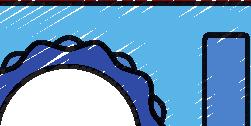
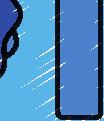
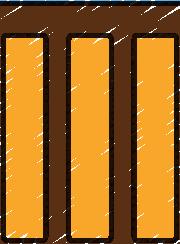
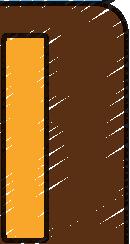
Physical Ed & Personal Fitness A/B
Prerequisites: Offered: Grade:
Credits: Other Info:
9, 10
0.5/0.5
None
Fall/Spring
Physical Education provides students with knowledge, experience, and an opportunity to develop skills in various sports or activities with the aims to develop individual lifelong fitness habits: team sports, individual/dual sports, recreational sports, and fitness/conditioning activities.
Students earning a standard diploma will complete 1.0 credit of Physical Education and 1.0 credit of Health. These two courses are typically taken, in some order, during ninth and tenth grade.
Health, Fitness, and Nutrition A/B
Prerequisites: Offered: Grade:
Credits: Other Info:
9, 10
0.5/0.5
None
Fall/Spring
This course combines the topics of Health Education (nutrition, stress management, substance abuse prevention, disease prevention, first aid, and so on) with an active fitness component (typically including aerobic activity and fitness circuits) with the intention of conveying the importance of life-long wellness habits.
“Take care of your body. It’s the only place you have to live.”
Art History
Grade:
Credits:
Prerequisites: Offered:
Other Info:
9, 10, 11, 12
0.5
None
Fall
Art History introduces students to significant works of art, artists, and artistic movements that have shaped the world and influenced or reflected various periods of history. The course may emphasize the sequential evolution of art forms, techniques, symbols, and themes. Art History may also develop an understanding of art in relation to social, cultural, political, and historical events throughout the world, while covering multiple artists, aesthetic issues, and the evolution of art.
Graphic Design & Illustration A/B
Grade:
Credits:
Prerequisites: Offered:
Other Info:
9, 10, 11, 12
0.5/0.5
None
Fall/Spring
This course emphasizes applying fundamental processes of artistic expression through the exploration of the purposeful arrangement of images, symbols, and text to communicate a message. Studies may include investigations of how technology influences the creation of graphic and digital designs and study historical and contemporary visual communications design. Students learn the process of responding to their own art and that of others through analysis, critique, and interpretation for the purpose of reflecting on and refining work.
Students earning a standard diploma will complete 3 0 credits in this category which includes The Arts, World Languages, & Career Technical Education and may choose based on their interests, academic goals or postsecondary goals.
Art in World Cultures
Grade:
Credits: Other Info:
9, 10, 11, 12 0.5
Prerequisites: Offered:
None
Spring
This course introduces students to the study of and foundation for many forms of art throughout the world and its cultures. The course helps students form an aesthetic framework to examine social, political, and historical events in the world and cultures and how visual images express the ideas of individuals and such cultures.
Digital Photography A/B
Grade:
Credits:
Prerequisites: Offered:
Other Info:
9, 10, 11, 12
0.5/0.5
Intro to Photography Fall/Spring of 25-26
Offered alternating years
This course explores the creative and conceptual aspects of designing and producing digital imagery, graphics, and photography. Students study the techniques, genres, and styles from multiple mediums and forms. Topics may include: aesthetic meaning, appreciation and analysis; composing, capturing, processing, and programming of imagery and graphical information; their transmission, distribution, and marketing; and contextual, cultural and historical aspects and considerations.
Music Appreciation
Grade:
Credits:
Prerequisites: Offered:
Other Info:
9, 10, 11, 12
0.5
None
Fall
This course provides students with an understanding of music and its importance in their lives. Course content focuses on how various styles of music apply musical elements to create an expressive or aesthetic impact. Students may also have the ability for informal music performance and creation within the classroom.
Theater, Film, Cinema Production
Grade:
Credits:
Prerequisites:
Offered:
Other Info:
9, 10, 11, 12
0.5
None
Fall of 24-25
Offered Alternating Years
This course provides an overview of the production of theater, film, and cinema artwork. It may include--but not be limited to-topics such as: an overview of theatrical or film elements including acting, set design, stage management, directing, playwriting, and production.
Students earning a standard diploma will complete 3 0 credits in this category which includes The Arts, World Languages, & Career Technical Education and may choose based on their interests, academic goals or postsecondary goals
Grade:
Prerequisites:
Offered:
Credits: Other Info: Introduction to Photography
9, 10, 11, 12
0.5
0.5/0.5
None
None
Fall 9, 10, 11, 12
Fall/Spring
This course builds a foundational understanding of the creative and conceptual aspects of designing and producing digital imagery, graphics, and photography. Students study the techniques, genres, and styles from multiple mediums and forms. This course is meant to prepare students for Digital Photography A/B.
Grade:
Credits:
Prerequisites:
Offered:
Other Info: Journalism
9, 10, 11, 12
0.5
0.5
None
None
Fall 9, 10, 11, 12
Fall
This course emphasizes writing style and technique as well as production values and organization. It introduces students to the concepts of newsworthiness and press responsibility; develops students’ skills in writing and editing stories, headlines, and captions; and teaches students the principles of production design, layout, and printing. Photography, photojournalism, and digital technology skills may be included.
Spanish I A/B
Grade:
Credits:
Prerequisites:
Offered:
Other Info:
9, 10, 11, 12
0.5
0.5/0.5
None
None
Fall 9, 10, 11, 12
Fall/Spring
Designed to introduce students to Spanish language and culture, Spanish I prepares students to communicate authentically in Spanish by interpreting (reading, listening, viewing), exchanging (speaking and listening; reading and writing), and presenting (speaking, writing) information on a variety of topics. It introduces the relationships among the products, practices, and perspectives of Spanish-speaking cultures.
Spanish III A/B
Grade:
Credits:
Prerequisites:
Offered:
Other Info:
9, 10, 11, 12
0.5
0.5/0.5
None Fall 9, 10, 11, 12
Spanish II
Fall/Spring
College Credit
Spanish III prepares students to communicate authentically in Spanish by interpreting (reading, listening, viewing), exchanging (speaking and listening; reading and writing), and presenting (speaking, writing) information, concepts, and ideas on a variety of topics, including connections to other subject areas. It expands students’ knowledge of relationships among the products, practices, and perspectives of Spanish-speaking countries and cultures.
Students earning a standard diploma will complete 3 0 credits in this category which includes The Arts, World Languages, & Career Technical Education and may choose based on their interests, academic goals or postsecondary goals.
Spanish II A/B
Grade:
9, 10, 11, 12
0.5/0.5
Prerequisites:
Offered:
Credits: Other Info:
Spanish I
Fall/Spring
Spanish II builds upon skills developed in Spanish I, preparing students to communicate authentically in Spanish by interpreting (reading, listening, viewing), exchanging (speaking and listening; reading and writing), and presenting (speaking, writing) information on concrete topics. Spanish II introduces the relationships among the products, practices, and perspectives of Spanish-speaking cultures.

Spanish for Business 9, 10, 11, 12
Grade:
Credits:
Prerequisites:
Offered:
Other Info:
None Fall 12
Fall Span III or Heritage Speaker
Students can learn Spanish as they also learn about basic business principles. This is a full immersion style course. All instruction and content is in Spanish. Prerequisites include Spanish 3 or heritage Spanish speakers (students that speak Spanish at home) or by teacher permission. Come join us and expand your Spanish vocabulary in the business arena. A certificate will be awarded to students that pass the course with 75% or higher overall score. This certificate can be used as evidence of your bilingual skills to potential employers.
French I A/B
Grade:
Credits:
Prerequisites:
Offered:
Other Info:
9, 10, 11, 12
0.5/0.5
None
Fall/Spring
Designed to introduce students to French language and culture, French I prepares students to communicate authentically in French by interpreting (reading, listening, viewing), exchanging (speaking and listening; reading and writing), and presenting (speaking, writing) information on a variety of topics. It introduces the relationships among the products, practices, and perspectives of French-speaking cultures.
American Sign Language I A/B
Grade:
Credits:
Prerequisites:
Offered:
Other Info:
9, 10, 11, 12
0.5/0.5
None
Fall/Spring
Designed to introduce students to American Sign Language (ASL) and culture. ASL I prepares students to communicate authentically in American Sign Language by interpreting (reading/viewing), exchanging (signing and reading), and presenting (signing) information on a variety of topics. It introduces the relationship among the practices, perspectives, and cultures of deaf people and communities.
Students earning a standard diploma will complete 3 0 credits in this category which includes The Arts, World Languages, & Career Technical Education and may choose based on their interests, academic goals or postsecondary goals.
French II A/B
Grade:
9, 10, 11, 12
0.5/0.5
Prerequisites:
Offered:
Credits: Other Info:
French I Fall/Spring
French II builds upon skills developed in French I, preparing students to communicate authentically in French by interpreting (reading, listening, viewing), exchanging (speaking and listening; reading and writing), and presenting (speaking, writing) information on concrete topics.
American Sign Language II A/B
Grade:
9, 10, 11, 12
0.5/0.5
Prerequisites:
Offered:
Credits: Other Info:
American Sign Lang I Fall/Spring
American Sign Language II builds upon skills developed in American Sign Language I, preparing students to communicate authentically in American Sign Language by interpreting (reading/viewing), exchanging (signing and reading), and presenting (signing) information on concrete topics. It introduces the relationship among the practices, perspectives, and cultures of deaf people and communities.
Intro to Game Design A/B
Grade:
9, 10, 11, 12
Students earning a standard diploma will complete 3 0 credits in this category which includes The Arts, World Languages, & Career Technical Education and may choose based on their interests, academic goals or postsecondary goals.
Computer Science 1A/1B
Grade:
9, 10, 11, 12
0.5/0.5
Prerequisites:
Offered:
Credits: Other Info:
Concurrently in Alg I B or instructor approval Fall/Spring
Prerequisites:
Offered:
Credits: Other Info:
0.5/0.5
None Fall/Spring
This year-long course explores the creative, technical and conceptual aspects of designing and producing interactive game experiences and products. Topics may include: aesthetic meaning; artistic, design and technical methods and practices. Establishing basics concepts of game construction and development, game theory and dynamics; analysis and media literacy; construction, development, processing, modeling, and programming of game-based experiences; their transmission, distribution, placement and marketing; and contextual, cultural and historical aspects and considerations.
This is the 2nd part of a year-long course that will continue to establish the creative, technical, and conceptual aspects of designing and producing interactive game experiences and products. Students will gain experiences with development using Construct3 which will prepare for future game development environments, terminology, or courses.
Introduction to Web Design
Grade:
9, 10, 11, 12
In this year long course, students will be Introduced to foundational skills and will explore the role technology plays in our lives as well as study fundamentals of computer science, hardware and software, how the internet functions, and the basics in python programming language.
This is the 2nd part of a year long course and will cultivate your understanding of programming and expands on your knowledge of website development Learn the difference between web development and web application development as well as further practice Python Programming. You will also examine software engineering concepts, learn more about security, privacy, and ethics in technology.
Python Programming A/B
Grade:
9, 10, 11, 12
0.5/0.5
Prerequisites: Offered:
Credits: Other Info:
Comp Sci 1A/1B Fall/Spring
College Credit
Credits: Other Info:
0.5
Prerequisites: Offered:
None Spring
Students will start a journey toward mastering three essential development tools: HTML, CSS, and JavaScript. Learning about the key components to create a web page. Your final project will be utilizing these skills to develop your own web page.
This is a year long course which is an application programming class enhancing basic computer programming skills, design, planning and implementation learning the python programming language. Students will be able to work on collaborative projects and labs that create the relationship between hardware and python programming. Continuing python programming class A enhancing basic computer to intermediate programming skills, design, planning, and implementation. Learning that python programming as it applies to dictionaries, objects, tuples, and databases.
Cybersecurity A/B
Grade:
Credits:
Prerequisites:
Offered:
Other Info:
10, 11, 12
0.5/0.5
English 9, Comp Sci 1B
Fall/Spring
This is a year long course. You will learn about the various parts of your computer, how they work together, and how you can manipulate them to keep your data safe. You’ll also dive into the tools, technologies, and methods that will help protect you from an attack and discover the many opportunities in the rapidly growing field of cybersecurity. Course focuses on networking terminology, concepts, and security. Students will work on technical and informational communication writing.
You will continue to learn about the various parts, networking, and the computer, how they work together, and how you can manipulate them to keep your data safe. You’ll also dive into the tools, technologies, and methods that will help protect you from an attack and discover the many opportunities in the rapidly growing field of cybersecurity.
Students earning a standard diploma will complete 3 0 credits in this category which includes The Arts, World Languages, & Career Technical Education and may choose based on their interests, academic goals or postsecondary goals.
Child Safety and Nutrition
Grade:
Credits: Other Info:
9, 10, 11, 12 0.5
Prerequisites: Offered:
None
Fall of 24-25
Offered alternating years
This course examines the basic physical, psychological, and emotional needs of children from birth to 8 years of age. Topics include: recognizing child abuse and neglect, first aid, emergency response, basic nutrition, and creating healthy learning environments.
Intro to Education
Grade:
Credits: Other Info:
9, 10, 11, 12 0.5
Prerequisites: Offered:
None
Spring of 24-25
Offered Alternating Years
This course provides a foundational understanding of education as a profession. Topics include: current trends and issues, program types, popular educational theories and theorists, working with families, and state licensing regulations for both K-12 schools and early learning centers.
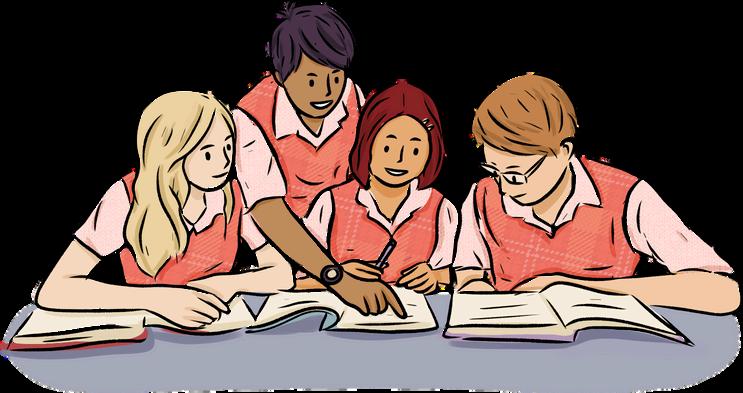
Students earning a standard diploma will complete 3 0 credits in this category which includes The Arts, World Languages, & Career Technical Education and may choose based on their interests, academic goals or postsecondary goals.
Exploring Leadership in FFA
Grade:
9, 10, 11, 12
Introduction to Animal Careers
Grade:
8, 9, 10, 11, 12
0.5
Prerequisites:
Offered:
Credits: Other Info:
None Fall
The Introduction to Animal Careers course will provide an in-depth look at the various careers available in the animal field. Students will explore the career pathway and learn about the educational and work experience requirements and skills needed to be successful in these careers working with animals.
Animal Diseases and Parasites
Grade:
9, 10, 11, 12
0.5
Prerequisites:
Offered:
Credits: Other Info:
None Spring
The Animal Diseases and Parasites course will provide an overview of the diagnosis, symptoms, treatments, and prevention of common animal diseases and parasites. Students will learn how physiological, nutritional and morphological defects, along with external variables, can affect animals and make them more susceptible to these diseases or parasites.
Prerequisites:
Offered:
Credits: Other Info:
0.25
FFA Advisor Approval
Fall/Spring
Exploring leadership in FFA is a fun class where students will learn about being leaders in the field of agriculture. Students will have the opportunity to work on their supervised agriculture project, career development events, and learn leadership skills.
Animal Science 1A/1B
Grade:
9, 10, 11, 12
0.5/0.5
Prerequisites:
Offered:
Credits: Other Info:
None
Fall/Spring
This year long series will help students begin to develop the skills necessary for employment in the animal science or veterinary medical industries. Some topics covered are breed identification, production management and Veterinary Assisting skills. Students in this series will gain the knowledge necessary to pursue entry level employment in a veterinary clinic, boarding, or grooming facility.
Animal Science 2A/2B
Grade:
10, 11, 12
0.5/0.5
Prerequisites: Offered:
Credits: Other Info:
Animal Science 1 A/B
Fall/Spring
In Animal Science 2 students will continue to develop skills necessary for employment in the Veterinary Medical industry. Students will deepen their knowledge in this field by learning animal anatomy, physiology, animal handling, and clinic procedures. Students will gain the knowledge needed to work toward employment in a veterinary clinic, boarding, or grooming facility.
Introduction to Public Health
Grade:
Students earning a standard diploma will complete 3 0 credits in this category which includes The Arts, World Languages, & Career Technical Education and may choose based on their interests, academic goals or postsecondary goals.
Health Science Education 1A/1B
Grade:
Prerequisites:
Offered:
9, 10, 11, 12 0.5/0.5
None
Fall/Spring
Prerequisites:
Offered:
Credits: Other Info:
9, 10, 11, 12 0.5
None Spring
What is public health? Who decides which diseases get funding and which do not?
Study both infectious and non-communicable diseases as well as learn how we conquer these on a community/global level through various methods, including hygiene, sanitation, and nutrition Explore the role of current and future technologies and the ethics and governance of health on a global scale, and discover unique career opportunities you can pursue to make a difference.
Medical Terminology A/B
Prerequisites: Offered: Grade:
Credits: Other Info:
10, 11, 12
0.5/0.5
HS Ed 1 or Intro to PH Fall/Spring
College Credit available
Students will learn the meaning of medical terms by learning how to break down medical words into their prefixes, suffixes, and roots. This class is ordered by body systems.
Students will learn about human diseases, diagnostic tools and treatments as they relate to each body system.
Fall term will cover the skeletal system, muscular system; nervous system; blood, lymphatic and immune systems and cardiovascular system.
Spring term will cover the respiratory system, digestive system, special senses (eyes and ears), endocrine system, urinary system and reproductive systems.
Credits: Other Info:
This year long course presents info and terminology for health science careers. This course will focus on healthcare systems and delivery, safety and infection control, disease classification. This second semester course will focus on health and wellness, first aid, professional communication, and documentation.
Medical Law & Ethics
Grade:
10, 11, 12
0.5
Prerequisites:
Offered:
Credits: Other Info:
HS Ed 1 or Intro to PH Fall of 24-25
Offered alternating years
Medical Law and Ethics begins by introducing students to the historical crimes that lead to the creation of formal bioethic codes, including The Nuremberg Code and The Belmont Report. Students will read these codes and learn how to apply the four principles of bioethics — beneficence, nonmaleficence, justice and autonomy — to a variety of clinical case studies. We will also discuss legal and professional rights and responsibilities within healthcare settings. Other topics include tort law, HIPAA, Medicare, Medicaid and the Affordable Care Act.
Prerequisites: Offered: Grade:
Credits: Other Info: Health Occupations
10, 11, 12
0.5
HS Ed 1 or Intro to PH Spring
College Credit
Survey of medical and health-related occupations, including biomedical sciences. Discussion of health care structure, private and public entities, the research community and trends in health education and practice.
Digital Literacy Business 1
Grade:
9, 10, 11, 12
Students earning a standard diploma will complete 3 0 credits in this category which includes The Arts, World Languages, & Career Technical Education and may choose based on their interests, academic goals or postsecondary goals.
Digital Literacy Business 2
Grade:
9, 10, 11, 12
0.5
Prerequisites:
Offered:
Credits: Other Info:
Digital Literacy
Spring of 25-26
Offered Alternating Years
Prerequisites:
Offered:
Credits: Other Info:
0.5
None
Fall of 25-26
Offered Alternating Years
Do you dream of owning your own business someday, or working for a company in a leadership position? Wherever your path may lead you, having the essential knowledge of business types, requirements to start a business, understanding of finances, business law, marketing, sales, customer service, and more, will ensure you’re on the path to success. Let’s explore your passion for business in this course!
Sports Management
Grade:
9, 10, 11, 12
Learn about professional conduct, teamwork, and managerial skills, while also examining careers in business technology. The basics of word processing, spreadsheets, databases, and presentation software are also explored so that you become better prepared for jobs in this field.
Principles of Marketing
Grade:
9, 10, 11, 12
0.5
Prerequisites:
Offered:
Credits: Other Info:
None
Fall of 24-25
Offered Alternating Years
Prerequisites:
Offered:
Credits: Other Info:
0.5
None Fall
This course provides students with a thorough understanding of fundamental marketing and management concepts and theories as they relate to the sports or entertainment industries. Content may address some, but not limited to, topics such as: promotion of sports/events, licensing, sponsorship and endorsements, branding, marketing research, product development, pricing and distribution strategies, sales, event planning and the role of existing and emerging technologies.
This class is designed to give you a foundational understanding and an introduction to social media marketing via a real life social media simulation. Use the digital textbook and materials to become familiar with what marketing is, how it influences business decisions and consumer actions, and how to use principles of marketing to present yourself as you build a professional profile. Open to all ORCA students.

Intro to Hospitality & Tourism
Grade:
Credits:
Prerequisites:
Offered:
Other Info:
9, 10, 11, 12
0.5
None
Spring of 25-26
Offered Alternating Years
Where is your dream travel destination? Now imagine working there! You’ll be introduced to a thriving industry that caters to the needs of travelers through managing hotels, restaurants, cruise ships, resorts, theme parks, and any other kind of hospitality you can imagine Operating busy tourist locations, creating marketing around leisure and travel, spotting trends, and planning events are just a few of the key aspects you will explore within this exciting field. Students will be introduced to our HTM pathway at ORCA if this is a career they'd be interested in pursuing. Open to all ORCA students.
Students earning a standard diploma will complete 3 0 credits in this category which includes The Arts, World Languages, & Career Technical Education and may choose based on their interests, academic goals or postsecondary goals.
Hotel Management 1A/1B
Grade:
10, 11, 12
0.5/0.5
Prerequisites:
Offered:
Credits: Other Info:
None
Fall/Spring of 24-25
Offered Alternating Years College Credit Available
Fall - In this course, you will learn about the business of hospitality and the different types of hotel ownership and programs. You’ll explore the essential functions of a hotel from bookings, management systems, front and back of house operations, technologies, and more. You’ll also discover what it takes to keep guests happy and run a sustainable program. Let’s create some management magic.
Spring - This class is designed to give you a foundational understanding and an introduction to social media marketing via a real life social media simulation. Use the digital textbook and materials to become familiar with what marketing is, how it influences business decisions and consumer actions, and how to use principles of marketing to present yourself as you build a professional profile. Open to all ORCA students.
AVID 9 A/B
Grade:
The AVID elective class is designed for students who are determined to find success in post-secondary fields The AVID elective class utilizes rigorous instructional methods and 21st century skills to equip students with the skills needed to thrive in whatever path is chosen. Students engage in weekly socratic style lessons to strengthen their skills in Writing, Inquiry, Collaboration, Organization and Reading.
AVID 11 A/B
Grade:
Prerequisites: Offered:
AVID courses encourage students to pursue college and/or career readiness. Typically, the course offers activities that enable students to learn organizational and study skills, enhance their critical thinking skills, receive academic assistance as necessary, and be motivated to achieve their goals. 9 1.0
Credits: Other Info:
Approved Application Fall/Spring






AVID 10 A/B
Prerequisites: Offered: Grade:
Credits: Other Info:
AVID courses encourage students to pursue college and/or career readiness. Typically, the course offers activities that enable students to learn organizational and study skills, enhance their critical thinking skills, receive academic assistance as necessary, and be motivated to achieve their goals. 10 1.0
Approved Application Fall/Spring
Prerequisites: Offered:
Credits: Other Info:
AVID courses encourage students to pursue college and/or career readiness. Typically, the course offers activities that enable students to learn organizational and study skills, enhance their critical thinking skills, receive academic assistance as necessary, and be motivated to achieve their goals.






























AVID 12 A/B
Grade:
Credits: Other Info:
Prerequisites: Offered:















Approved Application Fall/Spring
AVID courses encourage students to pursue college and/or career readiness. Typically, the course offers activities that enable students to learn organizational and study skills, enhance their critical thinking skills, receive academic assistance as necessary, and be motivated to achieve their goals.
Grade:
10, 11, 12
Students earning a standard diploma will complete 3 0 credits in this category which includes The Arts, World Languages, & Career Technical Education and may choose based on their interests, academic goals or postsecondary goals.
Nutrition & Foods
Grade:
11, 12
0.5
Prerequisites:
Offered:
Credits: Other Info:
0.5
None Fall
Do you love children? Maybe you plan on babysitting or having your own someday. Learn how being a parent is much more than merely feeding, bathing, and protecting a child. Creating a positive environment, nurturing, fostering education, and serving as a role model are critical aspects. Learn how to be a positive force in the development of your future children, as well as others around you.
Foods and Cooking
Grade:
Credits:
Prerequisites:
Offered:
Other Info:
11, 12
0.5
Nutrition & Foods Spring
Meant to accompany or follow Nutrition and Foods, this course assists students in understanding the role of nutrition in foods and cooking, with an emphasis placed on life skills and relevant application. Demonstrations through Live Class and guided instruction are used throughout the course. Ultimately, students will be given the opportunity to have the necessary skills to understand the structure and function of all the essential nutrients, plan, purchase and prepare nourishing meals and to evaluate and improve their day-to-day food choices.
Prerequisites:
Offered:
Credits: Other Info:
Health, Fitness and Nutrition A/B Fall
Nutrition and Foods assists students in understanding the role of nutrition in health and wellness. Demonstrations through Live Class and guided instruction are used throughout the course. Ultimately, students will be given the opportunity to have the necessary skills to understand the structure and function of all the essential nutrients, plan, purchase and prepare nourishing meals and to evaluate and improve their day-to-day food choices.
Intro to Cooking
Grade:
Credits: Other Info:
9, 10, 11, 12 0.5
Prerequisites:
Offered:
Spring of 24-25
Offered alternating years
Introduction to Cooking students will learn basic cooking skills and nutrition. Demonstrations through Live Class and guided instruction are used throughout the course. Ultimately, students will be given the opportunity to have the necessary skills to learn about kitchen safety, sanitation, kitchen equipment, cooking terms, proper measuring, microwave cooking, and basic cooking skills.
Sociology: Your Social Life
Grade:
Credits:
Prerequisites:
Offered:
Other Info:
9, 10, 11, 12 0.5
None
None
Fall 10, 11, 12
Fall of 25-26
Offered alternating years
This course examines a particular topic in sociology--the individual in society--rather than provide an overview of the field of sociology.
Forensic Science
Grade:
Credits:
Prerequisites:
Offered:
Other Info:
9, 10, 11, 12
0.5
None
Fall of 25-26
Offered alternating years
Forensic Science provides is an overview of the theoretical understanding and practical application of forensic science techniques. The course may explore applied science and biology, chemistry, physics, and crime science investigation. Topics covered may include: genetics, anthropology, toxicology, entomology, ballistics, pathology, computer forensics, fire debris and trace evidence among other relevant, topical topics.
Creative Writing
Grade:
Credits:
Prerequisites:
Offered:
Other Info:
9, 10, 11, 12
0.5
None
Spring of 25-26
Offered alternating years
This course lays the groundwork for a student to have a career in writing. Students will learn the backbone skills of good writing along with expressing their creativity. They will learn collaboration skills in working with peers by communicating through giving and getting feedback. Students will be exposed to differing perspectives and opinions through their writing which will induce and promote critical thinking.
Students earning a standard diploma will complete at least 5 0 credits in this category and may choose based on their interests, academic goals or postsecondary goals General Electives for other ASCEND pathway elective offerings, marked with A*. Courses in other subject areas beyond the requirements (Language Arts, Mathematics, Science, Social Studies, Arts, World Languages and CTE) may be applied to this category.
Introduction to Criminal Justice
Grade:
9, 10, 11, 12
0.5
Prerequisites:
Offered:
Credits: Other Info:
None
Spring of 25-26
Offered alternating years
This course trains students to understand and apply the principles and procedures essential to the U.S. criminal justice system. Topics may include: structure, history and philosophy of the federal, state, county, and municipal court systems; judicial appointment processes; arrest-to-sentencing sequences; laboratory, forensic, and trial procedure; probation and parole; state and federal correctional facilities; and system interrelationships with law enforcement agencies.
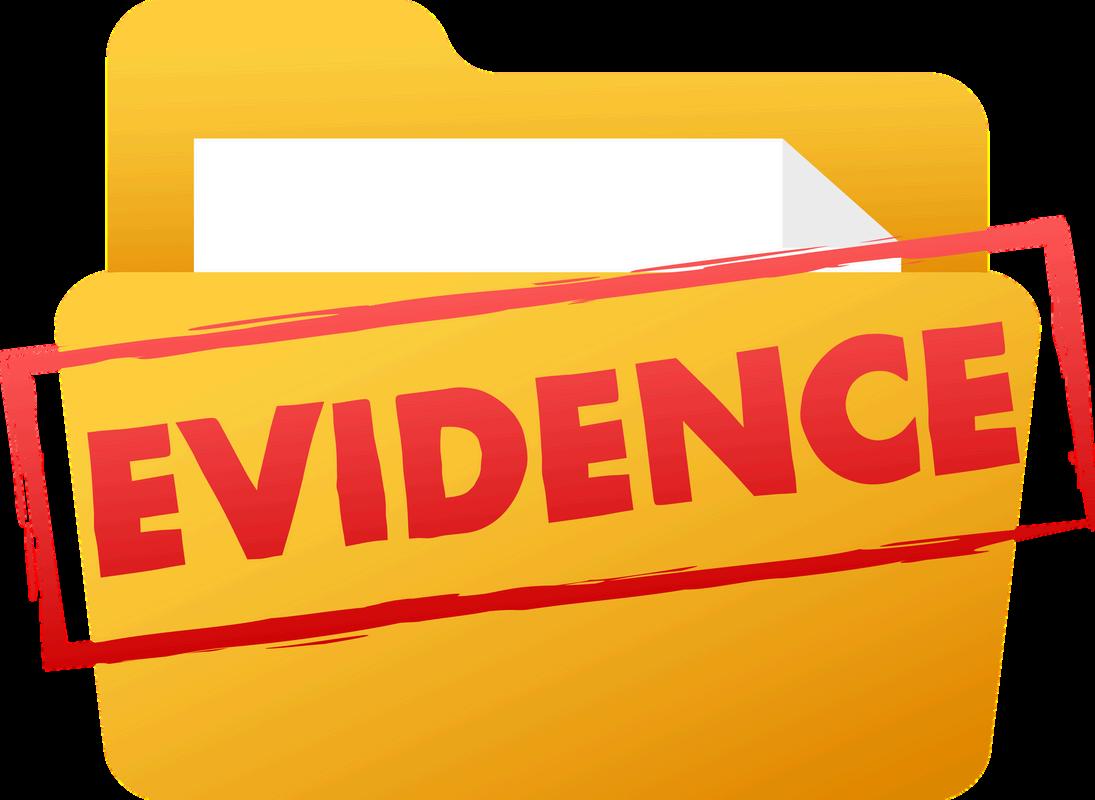
Criminology: Inside the Criminal Mind
Grade:
9, 10, 11, 12
0.5
Prerequisites:
Offered:
Credits: Other Info:
None
Fall of 24-25
Offered alternating years
In today’s society, crime and deviant behavior are often one of the top concerns of society members. From the nightly news to personal experiences with victimization, crime seems to be all around us. In this course, we will explore the field of criminology or the study of crime. In doing so, we will look at possible explanations for crime from psychological, biological, and sociological standpoints, explore the various types of crime and their consequences for society, and investigate how crime and criminals are handled by the criminal justice system.
Social Media
Grade:
Credits:
Prerequisites:
Offered:
Other Info:
9, 10, 11, 12
0.5
None
Spring of 25-26
Offered alternating years
Social Media exposes students to various types of social media and how social media has influenced society. It may emphasize the forms, functions, regulations, implications, and utilization of social media.
Students earning a standard diploma will complete at least 5 0 credits in this category and may choose based on their interests, academic goals or postsecondary goals General Electives for other ASCEND pathway elective offerings, marked with A* Courses in other subject areas beyond the requirements (Language Arts, Mathematics, Science, Social Studies, Arts, World Languages and CTE) may be applied to this category
Team Sports
Grade:
Credits:
Prerequisites: Offered:
Other Info:
9, 10, 11, 12
9, 10, 11, 12
0.5
0.5
None
None
Fall
Fall
This course explores and applies physical education and health concepts through the lens of team sports in American & various international cultures.
Strategies for Online Learning A/B
Grade:
9, 10, 11, 12
0.5/0.5
Prerequisites: Offered:
Credits: Other Info:
None
Fall/Spring of 25-26
Offered Alternating Years
This elective course explores what it means to be a digital learner and teaches strategies that will help students excel in an online learning environment. Topics include digital citizenship and literacy, Internet safety and etiquette, navigating online courses and building good study habits as an online learner, reflecting on the technology and digital tools we use for learning, communicating well in a digital context, and many more.

Workplace Experience A/B
Grade:
This course offers students to earn high school credit while simultaneously gaining work experience in an occupation of their choice. Please discuss this option with your counselor or advisor if interested. 12
Credits: Other Info:
0.5/0.5
Prerequisites: Offered:
None
Fall/Spring
English Learners HS A/B
Grade:
Credits:
Prerequisites:
Offered:
9, 10, 11, 12
None
All Year
English as a Second Language (ESL) is designed for the acquisition and rapid mastery of the English language, focusing on reading, writing, speaking, and listening skills. It usually begins with extensive listening and speaking practice, building on auditory and oral skills, and then moves on to reading and writing. These courses provide an explanation of basic structures of the English language, enabling students to progress from an elementary understanding of English words and verb tenses to a more comprehensive grasp of various formal and informal styles and then to advance to “regular” English courses. ESL classes may also include an orientation to the customs and culture of the diverse population in the United States.
ACES HS Skills for Success A/B
Grade:
Credits:
Prerequisites:
Offered:
9, 10, 11, 12
None
All Year
ACES Skills for Success focuses on transition and independent living skills. They cover topics such as organizational skills, hygiene, wellness, safety awareness, and life after high school. ACES Skills for Success is open to students who are earning an extended diploma or certificate of attendance.
ACES Social Skills A/B
Grade:
Credits:
Prerequisites:
Offered:
9, 10, 11, 12
None
All Year
ACES Social Skills focuses on building communication and emotional skills. They cover topics such as emotional regulation, conversation skills, interpersonal relationships, and improving self-efficacy and confidence. ACES Skills for Success is open to students who are earning an extended diploma or certificate of attendance.
ACES HS Language Arts A/B
Grade:
Credits:
Prerequisites:
Offered:
9, 10, 11, 12
None
All Year
Our special education teachers curated the ACES curriculum to meet the individual needs of each student in the program. We also use n2y (Unique) and other online instructional tools (e.g. IXL and iReady) to support our students in their learning. ACES is taught at the student’s instructional level rather than grade level - this includes general education electives - significant modifications are required. ACES Language Arts focuses on functional reading and writing to build comprehension and fluency. ACES Language Art is open to students who are earning an extended diploma or certificate of attendance.
ACES HS Math A/B
Grade:
Credits:
Prerequisites:
Offered:
9, 10, 11, 12
None
All Year
Our special education teachers curated the ACES curriculum to meet the individual needs of each student in the program. We also use n2y (Unique) and other online instructional tools (e.g. IXL and iReady) to support our students in their learning. ACES is taught at the student’s instructional level rather than grade level - this includes general education electives - significant modifications are required. ACES Mathematics focuses on functional math skills such as telling time, money math, and other basic math skills. ACES Mathematics is open to students who are earning an extended diploma or certificate of attendance.
ACES Enrichment A/B
Grade:
Credits:
Prerequisites:
Offered:
9, 10, 11, 12
None
All Year
ACES Enrichment is a class only for our students on a certificate of attendance. It covers both science and social studies content at the student’s instructional level. ACES Enrichment is open to students who are earning a certificate of attendance.
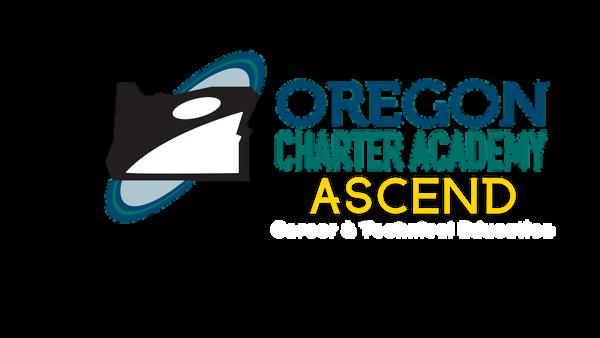






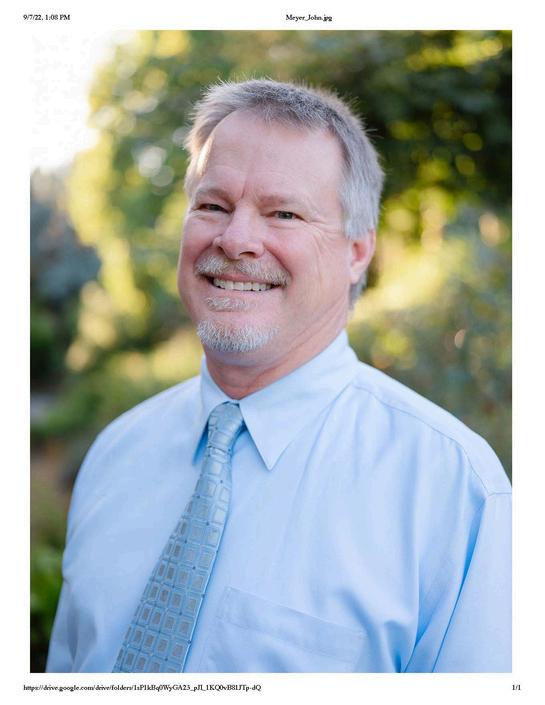
At Oregon Charter Academy we understand there is not one educational path that fits the needs of all students. We want to help students gain the skills they need as they move beyond high school and into college or a career. My name is John Meyer and I'm the ASCEND Administrator. Our Career and Technical Education (CTE) program is designed to provide ORCA students with career-relevant knowledge and skills. ASCEND currently has five career pathways that high school students can participate in: Computer Science, Business + Management, Hospitality & Tourism Management, Medical Science, and Animal Science. ASCEND students will be a part of a smaller cohort of students that will have a unique high school journey. While they will have some extra expectations during high school, they will have the close support of teachers that have worked asprofessionals in their chosen career fields. ASCEND students will have the opportunities for more hands-on learning and will be expected to take part in Work-Based Learning (WBL) opportunities, during their senior year. They will also have opportunities to be a part of national student organizations while in high school. In many cases, ASCEND students will have opportunities to obtain industry certificates and participate in college level courses in their field of study.
Students can apply for the CTE program in the 9th, 10th or 11th grades. Please contact us if you have any questions. Click here to visit our ASCEND site!

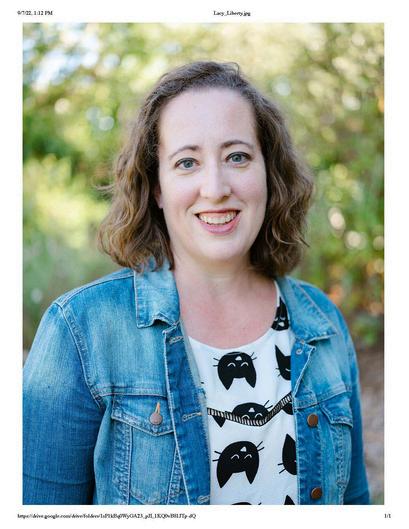


llacy@oregoncharter.org
Mrs. Lacy brings 20+ years of experience to the role of ASCEND Advisory Teacher. She has served as a teacher, college and career readiness facilitator, and internship coordinator. Mrs. Lacy cares deeply about students and their goals and believes strongly in the benefits of Career & Technical Education. Traveling with her family, reading and crafts are some of her favorite things.
Mr. Harlow has taught high school Language Arts and College and Career Readiness for 10 years and with ORCA as an Advisory Teacher going into his 4th year. His passion is in the value of CTE programs.
Mr. Harlow also coaches collegiate baseball and in his spare time enjoys spending time with family, watching/playing sports, and being in the outdoors.


ASCEND students will be part of a smaller group of ORCA students that will have a unique high school journey. While ASCEND students will have some extra expectations during high school, they will also have the close support of specialized Career Advisory Teachers that follow them through high school as well as certified Pathway Teachers that have worked in the industry they are teaching. our
Did you know that you could earn college credit while attending high school? Check with your Career Advisory Teacher for more information on dual credit courses offered in ASCEND pathways. College credit is dependent on the course and will be indicated in the course listings.
At Oregon Charter Academy (ORCA), we understand that no one educational path can fit the needs of all students, and that students need professional skills as they navigate their post-high school college or career goals. ASCEND is ORCA’s Career and Technical Education (CTE) Program, designed to provide ORCA students with customized career-relevant knowledge and skills.
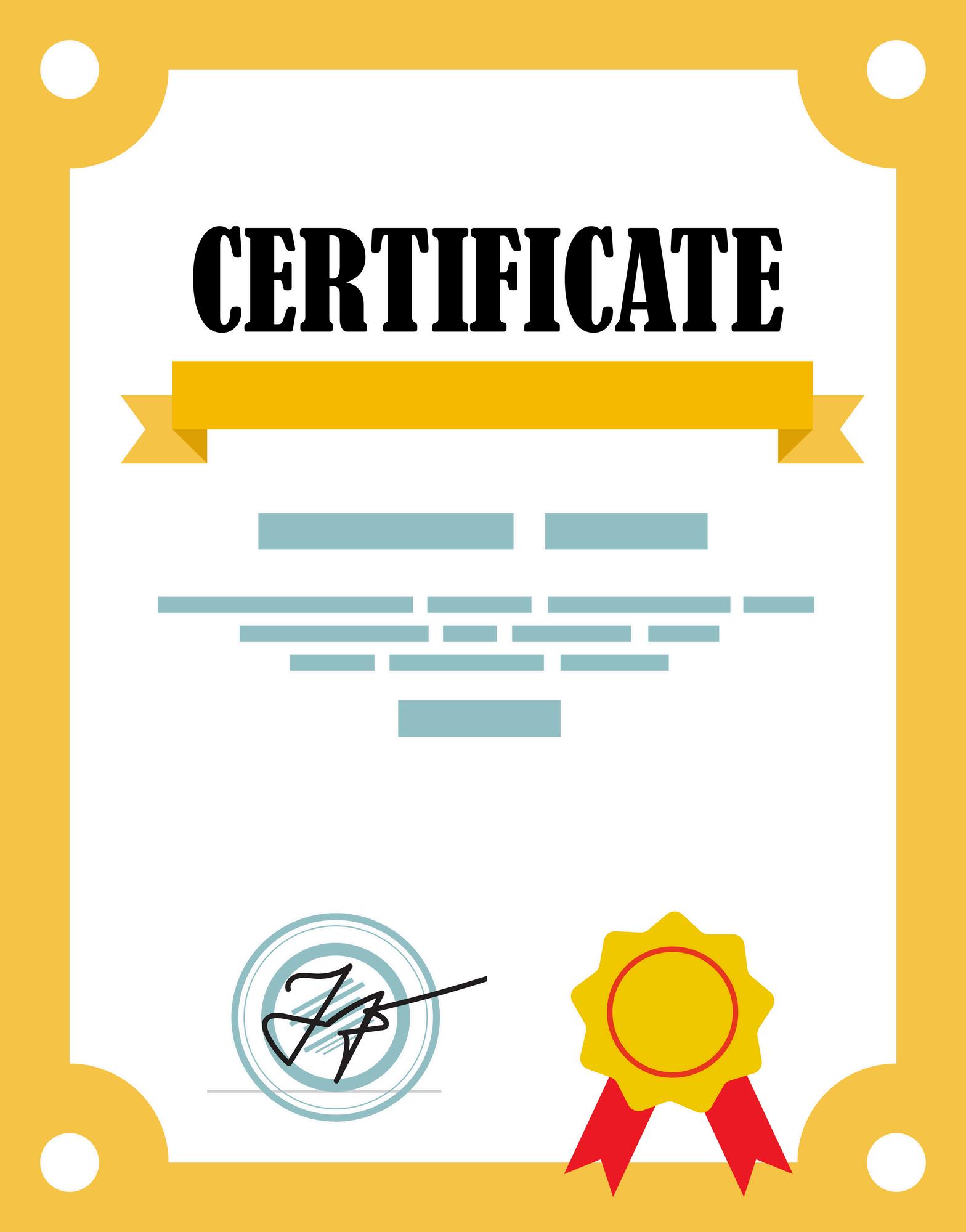
Students who choose to join ASCEND will have the opportunity to graduate high school with industry recognized credentials.

We believe that Career and Technical Student Organizations (CTSO's) are key to a strong Career and Technical Education program. CTSO's provide students with the opportunity to develop leadership skills and demonstrate occupational competency. Students can participate in activities, events, and competitions which provides further knowledge and skills per ACTEonline.org. We currently offer two pathway CTSOs:

HOSA is an organization for future healthcare professionals and leaders. The purpose of HOSA is to develop the leadership abilities of its student members through a program of motivation, awareness, competition, awards, scholar-
ships and recognition at the local, state, and national levels. Students who join HOSA can choose to compete against other members in events that test their knowledge and skill at the annual HOSA State Conference. Students may qualify for the national competition as well.
FFA is a dynamic youth organization that changes lives and prepares members for premier leadership, personal growth and career success through agricultural education.
FFA develops members' potential and helps them discover their talent through hands-on experiences, which give members the tools to achieve real-world success.
FFA is an intracurricular student organization for those interested in agriculture and leadership. It is one of the three components of agricultural education.

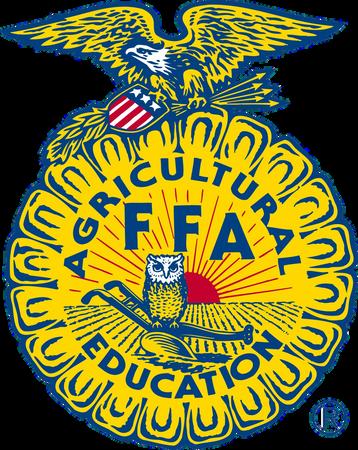
SkillsUSA is a partnership of students, teachers and industry working together to ensure America has a skilled workforce. We help each student excel. A nonprofit national education association, SkillsUSA serves middle-school, high-school and college/postsecondary students preparing for careers in trade, technical and skilled service occupations. SkillsUSA supports all pathways in their professional skills.
The National Technical Honor Society is an educational non-profit that exists to honor, recognize, and empower students and teachers in Career & Technical Education. As the honor society for Career & Technical Education, NTHS serves over 100,000 active members annually in both secondary and postsecondary chapters across country
NTHS honors the achievements of top CTE students, provides scholarships annually, and strives to help connect education and industry to build a highly skilled workforce.

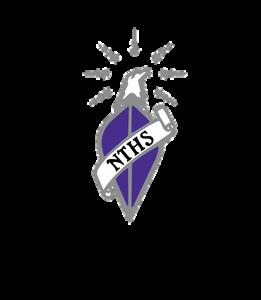

In ASCEND we know the importance of integrating classroom studies with work-based learning opportunities to bring career relevance to student’s academic endeavors. Our work-based learning classes are based upon a goal-oriented, dynamic partnership among the three workbased learning partners:
The student Industry Professionals
The ASCEND staff
During work-based learning, students engage in a variety of professional work activities designed to provide a total learning experience where students can apply knowledge from their written learning objectives. In addition, students will reflect upon their experiences and integrate their experience material into ASCEND pathway coursework. Work-based learning provides the student with an excellent opportunity to self evaluate her/his career goals and experience the workplace environment and cultural norms.
Academic credit is not given for work-based learning experience alone. Rather, the work-related experience is combined with curricula and classroom course requirements. We believe that the best educational experiences arise when learners are actively involved in constructing their own meaning and knowledge. Thus, our work-based learning experiences are focused on the following principle: learning is meant to be equally as dependent on practical experience as well as academic achievement.



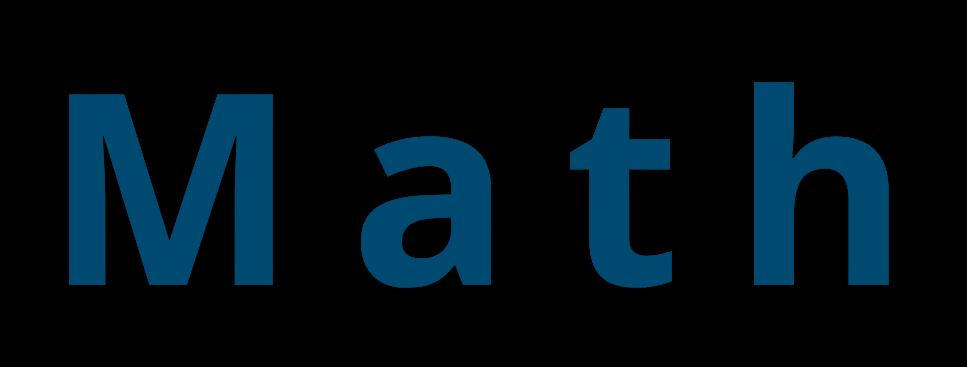
ASCEND students will have the opportunity to take a Math series. The complete series is a four year progression which includes Integrated Math 1A/B + CTE Lab, Integrated Math 2A/B + CTE Lab, Data Science, Math 111 and Math 112. These are all honors courses earning students weighted grade points. Math 111/112 will also provide an opportunity to obtain both high school and college math credit. Completion of Integrated Math 1A/B & 2A/B with Labs will satisfy the Algebra 1, 2 and Geometry standards and two of the three math credits required for graduation. Students will concurrently earn 1 credit in CTE electives through the required lab component for each year-long course.
Grade:
Credits:
Prerequisites: 9, 10, 11, 12
0.5/0.5
Taken w/ CTE Lab 1A/1B: Personal Finance
Sem(s) Offered: Fall/Spring
Other Info:
ASCEND Only
The first year-long course of the four-year ASCEND math program, covers functions, statistics, and geometry topics, building skills and applying them in authentic contexts. Students participate in a corequisite Personal Finance CTE lab where they experience real-life applications in simulations. This course provides a math pathway focused on introducing relevancy with unique preparation for life, college and career. It emphasizes the use of mathematics to model and explore financial phenomena including interpreting and justifying reasoning to make data-supported financial decisions using algebra and probability and statistics to solve problems occurring in everyday life. It includes inquiry-based problem units involving discretionary and essential expenses, independent living, employment, modeling a business, investing, credit, banking and mortgages. (Weighted grade honors course)

Grade:
Credits:
Prerequisites: 9, 10, 11, 12
0.5/0.5
Taken w/ Int Math 1A/1B
Sem(s) Offered: Fall/Spring
Only
This is a co-requisite lab component of the Integrated Math 1A/B course and must be taken simultaneously. The lab will provide work based learning simulations working in conjunction with the Integrated Math course to fulfill CTE requirements and authentic application of the math curriculum.
NOTE: Completion of Integrated Business Math 1A/B & 2A/B & Labs will satisfy the Algebra 1, 2 and Geometry standards and two of the three math credits required for graduation. These courses can be followed by Math 111z and Math 112z (College Credit) and/or Explorations in Data Science. Students will also earn two CTE: Business credits. Students will concurrently earn 1 credit in CTE: Business through the required lab component.
Grade:
Integrated Math 2A/2B ASCEND Only
Credits:
Prerequisites: 9, 10, 11, 12
0.5/0.5
Alg 1 or Int Math 1A/1B
Sem(s) Offered: Fall/Spring
Other Info:
Integrated Math 2A/B is the second course in a two year series. It includes advanced math topics and is equivalent to Algebra 2 with Geometry topics as well as real life simulations. This series provides an alternative math pathway for students with unique preparation for life. It emphasizes the use of mathematics to model and explore financial phenomena including interpreting and justifying reasoning to make data-supported financial decisions using algebra, and probability and statistics to solve problems occurring in everyday life. Inquiry-based problem units involving discretionary and essential expenses, automobile ownership, income taxes, banking services, consumer credit and modeling a business.
CTE Lab 2A/2B: Entrepreneurship ASCEND Only
Grade:
Credits:
Prerequisites: 9, 10, 11, 12
0.5/0.5
Taken with Int Math 2A/2B
Sem(s) Offered: Fall/Spring
Other Info:
This is a required lab component of the Integrated Math 2A/B course and must be taken simultaneously. The lab will provide work based learning simulations working in conjunction with the Integrated Math course to fulfill CTE requirements and authentic application of the math curriculum.
Explorations in Data Science A/B
Grade:
Credits:
Prerequisites: 10, 11, 12
0.5/0.5
Alg 1, Geom, Alg 2 or Int Math 2 A/B
Sem(s) Offered: Fall/Spring
Other Info:
ASCEND Only
Preparing students for both career and college, this course is appropriate for those who have completed Data Science I or Integrated 2A/2B. It will further expand student expertise as data scientists through the utilization of various tools (that may include) Google Sheets, Python, Data Commons, and Tableau. Students will learn to be data explorers in project-based units, through which they will develop their understanding of data analysis, sampling, correlation/causation, bias and uncertainty, probability, modeling with data, making and evaluating data-based arguments, the power of data in society, and more. At the end of the course students will have a portfolio of their data science work to showcase their newly developed abilities. (Weighted grade honors course)

Grade:
Credits:
Prerequisites: 10, 11, 12
0.5
Int. Math 2 A/B or Alg 2
Sem(s) Offered: Fall
ASCEND Only
Precalculus I: Functions (Math 111z) College Credit available
Other Info:
A course primarily designed for students preparing for trigonometry or calculus. This course focuses on functions and their properties, including polynomial, rational, exponential, logarithmic, piecewisedefined, and inverse functions. These topics will be explored symbolically, numerically, and graphically in real life applications and interpreted in context. This course emphasizes skill building, problem solving, modeling, reasoning, communication, connections with other disciplines relevant to ASCEND pathway students, and the appropriate use of present-day technology. Students will model and solve applied, theoretical mathematical, real-world problems related to various ASCEND pathways requiring the solution of linear, quadratic, polynomial, rational, exponential, and logarithmic functions. Graphing calculator required. TI-83 or TI84 recommended. ASCEND students only (Pre requisites: Algebra 2 or Integrated Mathematics 2) (College Credit Available: 4 Math Credits, meets first term pre-calculus college science pathway requirement). Weighted grade honors course.
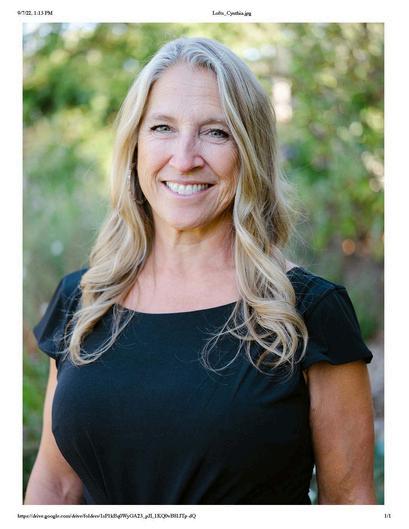
Precalculus II: Trigonometry (Math 112z)
Grade:
Credits:
Prerequisites: 10, 11, 12
0.5
Precalculus I
Sem(s) Offered: Spring
Other Info:
ASCEND Only
College Credit available
This semester-long college level trigonometry course examines the theoretical, applied, and realworld mathematical implications related to various ASCEND pathways of the trigonometric functions. The symbolic, numerical, and graphical representations of these functions and their applications form the core of the course. This course emphasizes solving problems symbolically, numerically and graphically and understanding the connections among these methods in interpreting and analyzing results. Graphing calculator required. TI-83 or TI-84 recommended. ASCEND students only (Pre-requisites: Precalculus I: Functions (Math 111z)) (College Credit Available: 4 Credits, meets college science pathway requirement for math credit). Weighted grade honors course.
Your teacher: Dr. Cynthia Lofts clofts@oregoncharter.org
I am so excited to be part of the ASCEND team and I am looking forward to seeing you in my classes. Most of my life I have owned my own business. I have experience in hospitality, tourism, managing employees and operations, as well as graphic and website design. I graduated with a BA in Economics from University of Washington and received my MAT Secondary Mathematics from University of Southern California. I completed my Doctorate from Grand Canyon University in Education. I began my teaching career in 2017. This year I will be teaching mathematics and CTE courses.



“The pathway to your greatest potential is straight through your greatest fears!”


Craig Groeschel
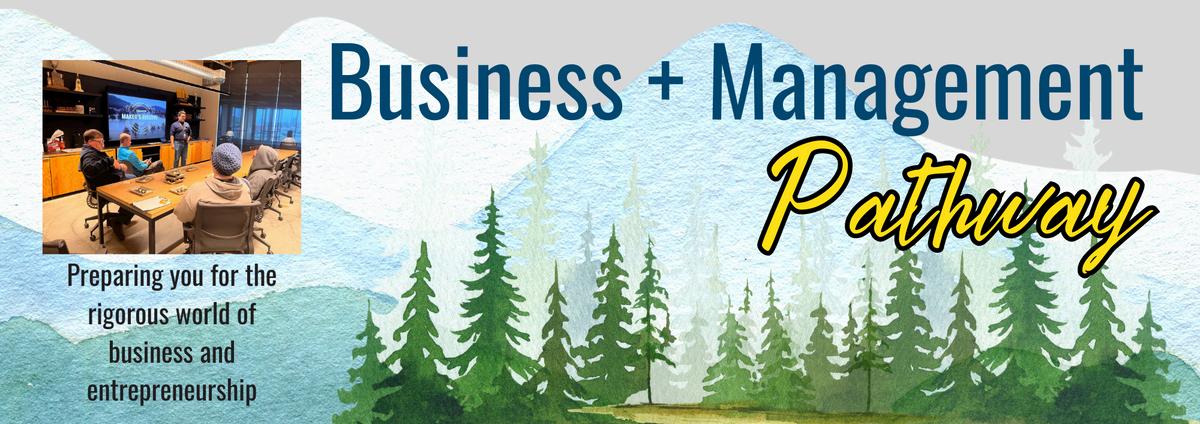
Source:canva.com
Business is the foundation for many paths. Whether you see yourself owning your own business, going into the Trades, the military or heading to college for a formal Business certificate program or degree, you have options. Get your start here at ORCA and go places. The ASCEND program will prepare you with essential skills that employers, apprenticeship programs, and colleges are looking for in ideal candidates. We invite you to come explore your areas of interest, complete your graduation requirements in collaborative courses (such as our exclusive Math x CTE classes) that meet Math & CTE grad requirements in one class. You’ll create your personal brand, build your social capital and earn Industry Recognized certifications. Make your four years count, get ready to ASCEND.
You might love a career in the Business + Management field if you are strong in these skill areas:
Organization
Marketing
Sales
Customer service
Communication
Leadership
Money management
Examples of degrees, certificates and potential paths ASCEND graduates can pursue after high school:
Associate of Science-Oregon Transfer Degree (Community College)
Bachelors of Science-Business
Masters of Business Administration
Business Technical Certificates
(Accounting, Data Analytics, Tax, Payroll, Virtual Office, HTM, etc)
Trades: Pre-Apprenticeship Programs
Military
Workforce
Digital tools
Delegating tasks
Time management
Problem solving
Networking
Working inside, outside
Teamwork/collaboration
Examples of possible careers that ASCEND graduates can pursue:
Business Industry Manager
Sales & Marketing
Consulting
Entrepreneurship / Business Ownership
Construction & Skilled Trades
Office Administrative
Hotel Manager
Ecotourism Operator
Sports Facility Manager and SO much more!

Grade:
Credits:
Prerequisites: 9, 10, 11, 12
None
Sem(s) Offered: Fall of 25-26
Other Info:
Do you dream of owning your own business someday, or working for a company in a leadership position? Wherever your path may lead you, having the essential knowledge of business types, requirements to start a business, understanding of finances, business law, marketing, sales, customer service, and more, will ensure you’re on the path to success. Let’s explore your passion for business in this course! Open to all ORCA students.
Other Info: Sports Management Offered Alternating years
Grade:
Credits:
Prerequisites: 9, 10, 11, 12
None
Sem(s) Offered: Spring of 24-25
Grade:
Credits:
Prerequisites: 9, 10, 11, 12 0.5
Dig Lit Bus 1
Sem(s) Offered: Spring of 25-26
Learn about professional conduct, teamwork, and managerial skills, while also examining careers in business technology. The basics of word processing, spreadsheets, databases, and presentation software are also explored so that you become better prepared for jobs in this field.
This course provides students with a thorough understanding of fundamental marketing and management concepts and theories as they relate to the sports or entertainment industries. Content may address some — but not limited to — topics such as: promotion of sports/events, licensing, sponsorship and endorsements, branding, marketing research, product development, pricing and distribution strategies, sales, event planning and the role of existing and emerging technologies. Open to all ORCA students.
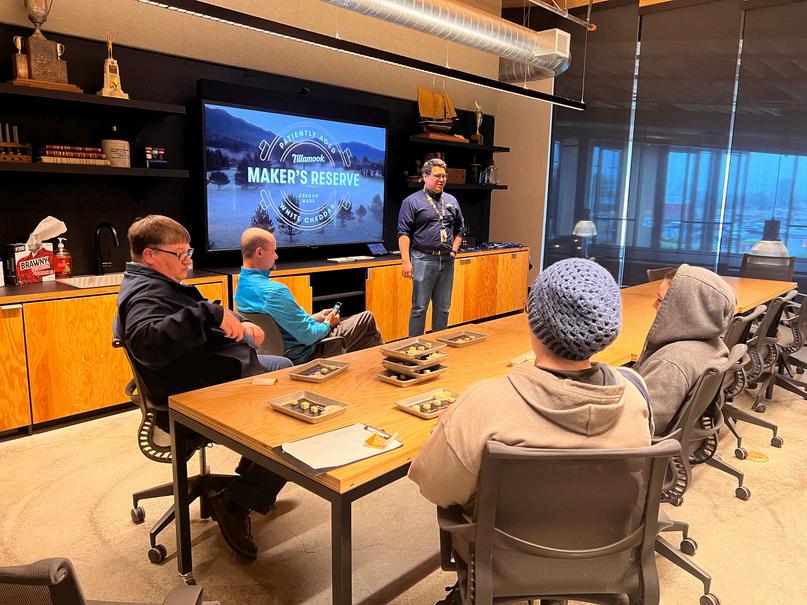

Priciples of Marketing
Grade:
Credits:
Prerequisites: 9, 10, 11, 12 0.5
None
Sem(s) Offered: Fall of 24-25
Other Info:
Bus. + Management - OR Emp. Skills
Grade: Credits: Prerequisites: 12 0.5 1 Business CTE Credit
Sem(s) Offered: Fall
Other Info:
This course will provide academic badging in Oregon Employability Skills including topics such as Resilience, Communication, Adaptability, etc Students will gain understanding of the qualities that lead to lifelong career success Industry exposure, professional branding and internship preparation will also be covered in this course.
Spanish for Business
Grade:
Credits:
Prerequisites: 12 0.5
Spanish 3 or heritage Speaker
Sem(s) Offered: Fall
Other Info:

Will you be at the top of the leaderboard? Immerse yourself as a social media marketing professional for Buhi Bags as you connect your knowledge of marketing with a real life social media simulation that will test your knowledge and skills in target audiences, consumer behavior, content creation and use of influencers to meet the metrics to meet the business goals and expectations The MIMIC SIM will give you a hands on approach to learning Students in this course can certify in social media marketing.
Bus. + Management - Work-Based Learning
Grade:
Credits:
Prerequisites: 12 0.5 Bus. Mgmt OES
Sem(s) Offered: Spring
Other Info:
This is the final course in the ASCEND Business pathway series Students will have the opportunity to review and reflect on their CTE pathway experience Reviewing strengths, goal setting and enhancing their personal brand are key elements in this class The opportunity to build a network through work based learning utilizing employability skills will prepare students for post-high school pursuits.
Students can learn Spanish as they also learn about basic business principles. All instruction and content is in Spanish. Come join us and expand your Spanish vocabulary in the business arena. A certificate will be awarded to students that pass the course with 75% or higher overall score This certificate can be used as evidence of your bilingual skills to potential employers
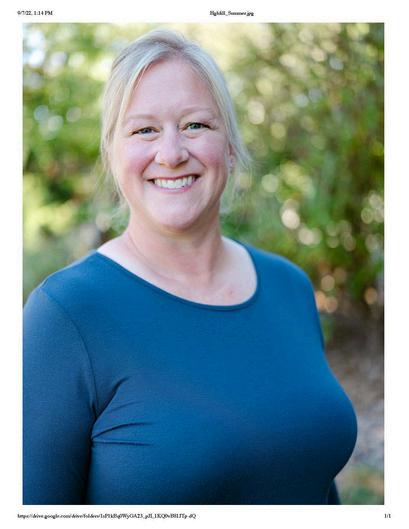
shighfill@oregoncharter.org
Our Business teaching team invites you to consider and participate in our ASCEND Business Pathway programs at ORCA. Whether you see yourself owning your own business and showcasing your entrepreneurship skills, working in a business with your intrapreneurial skills, creating your personal brand, working as an influencer, or working in the Travel, Hospitality and Recreation industries, we have a little something for everyone. Our teaching team brings a rich history of business experience. You’ll get instruction from teachers that understand the world of Business AND have owned and operated their own businesses. We are ready to help you start your journey and define your future. I own my own marketing & consulting business and I enjoy bringing my knowledge to my students. I’ve enjoyed teaching for over 20 years and I understand what YOU need to be successful. I’ll prepare you for what is next and if college is in the plans, I’ll share strategies that I’ve used to fund my 4 degrees from Lane Community College, University of Oregon, Pacific University and Creighton University-where I just earned my MBA. I teach: Digital Literacy, Business Communications, Public Speaking, Principles of Marketing, Intro to Hospitality & Tourism, Hotel Management, Restaurant Management and Work Based Learning courses. Join us in your learning adventure as we prepare YOU for your next chapter.
It’s great to see you are considering the ASCEND Business + Management pathway. Perhaps I can share a little about myself in hopes that I will get to know you better in the near future. I have spent most of my career providing products and services to large multinational technology companies. I became a teacher in 2014 and have taught ESOL (English as a Second Language) Spanish as well as various business courses. I can help you connect a solid HS education to future career global opportunities. My education includes a B.S. in Business Management from BYU, a Masters in Teaching from Willamette University and am currently finishing up a Masters in Teaching Spanish from SOU. I have taught ESOL, Spanish, Marketing, Accounting and currently Principles of Business Management, Marketing & Finance.
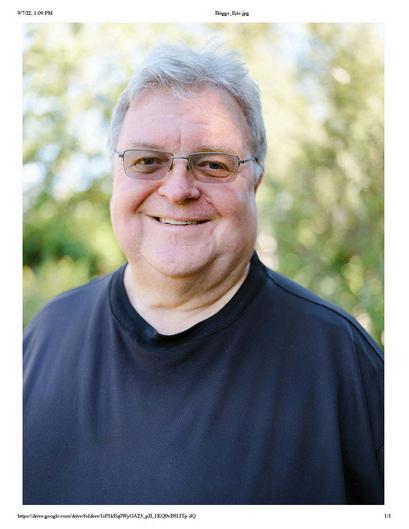

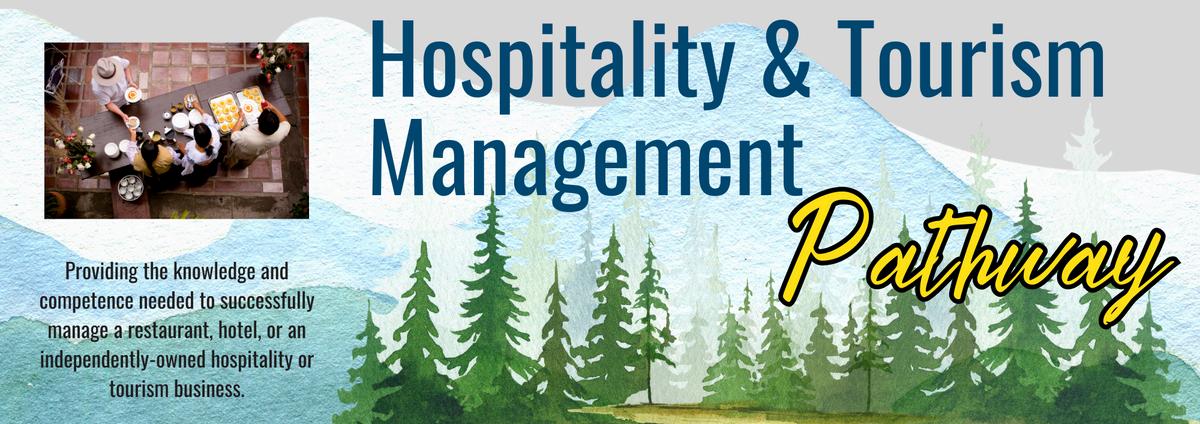
Our newest pathway, Hotel & Tourism Management, is a vast industry where students can go in a multitude of directions such as hotels, restaurants, and airlines as well as catering, casinos, cruise line operations, and resorts or spas.
Did you know that tourism in Oregon generates over $11 Billion dollars and it generates over 100,000 jobs for those interested in pursuing a career This industry is still growing and and if you have the desire to help others plan their next excursion or maybe you want to travel yourself, this is the field for you
You might love a career in the Hotel & Tourism Management field if:
You want to learn about other cultures
You enjoy all modes of transportation
You are interested in providing the best customer service possible
You are able to multi-task
You like helping others plan their next great adventure.
You like finding the hidden gems in the world
Examples of degrees, certificates and potential paths ASCEND graduates can pursue after high school:
Certification in:
Food & Beverage Management
Hospitality & Tourism Management
Degree & Career Options:
Associate of Applied Science
Bachelor of Business: Tourism, Leisure & Event Management
(International Program, 3 years at Lane CC + Australia)
Bachelor of Science: Business
Bachelor of Science: Sports & Tourism Mgmt
Bachelor of Science: International Hotel Mgmt
Master of Business Administration
Workforce
Examples of possible careers that ASCEND graduates can pursue:
Concierge
Hotel or motel manager
Food service manager
Meeting and convention manager
Attractions managers
Food cart entrepreneurs
Wedding, event and convention planners
Restaurant, bar and winery tasting room managers

Grade:
Credits:
Prerequisites: 9, 10, 11, 12 0.5
None
Sem(s) Offered: Spring of 25-26
Where is your dream travel destination? Now imagine working there! You’ll be introduced to a thriving industry that caters to the needs of travelers through managing hotels, restaurants, cruise ships, resorts, theme parks, and any other kind of hospitality you can imagine. Operating busy tourist locations, creating marketing around leisure and travel, spotting trends, and planning events are just a few of the key aspects you will explore within this exciting field. Students will be introduced to our HTM pathway at ORCA if this is a career they'd be interested in pursuing. Open to all ORCA students.
1A
Grade: Credits: Prerequisites: 10, 11, 12
Sem(s) Offered: Fall of 24-25
In this course, you’ll dig deeper into hotel organization from structure to departments and staffing needs. You’ll explore management and leadership including types of managers; management styles, roles, and responsibilities; and technical and communication management skills. You’ll also learn more about the big picture of the travel and tourism industry, how to handle emergencies, growth and sustainability, laws and ethics, careers in the industry, and more! Let’s push those curtains wide open for a better view of your road to management.

Grade:
Credits:
Prerequisites: 10, 11, 12 0.5
None
Sem(s) Offered: Spring of 24-25
Other Info:
Management 1B College Credit Available
Alternating years
In this course, you will learn about the business of hospitality and the different types of hotel ownership and programs. You’ll explore the essential functions of a hotel from bookings, management systems, front and back of house operations, technologies, and more. You’ll also discover what it takes to keep guests happy and run a sustainable program. Let’s create some management magic!
The
hours are customized and personalized for student interest, current work experience/employment, etc. and can include simulation work, volunteer positions, paid or unpaid work placements, and customer service work outside of hospitality. Students will customize their work plan with their instructor to create their own work experience towards certification.


Students in this course
complete the final 50 hours towards the 100 hours required for the Hospitality & Tourism Specialist Certification. The industry hours are customized and personalized for student interest, current work experience/employment, etc. and can include simulation work, volunteer positions, paid or unpaid work placements, and customer service work outside of hospitality. Students will customize their work plan with their instructor to create their own work experience towards certification.
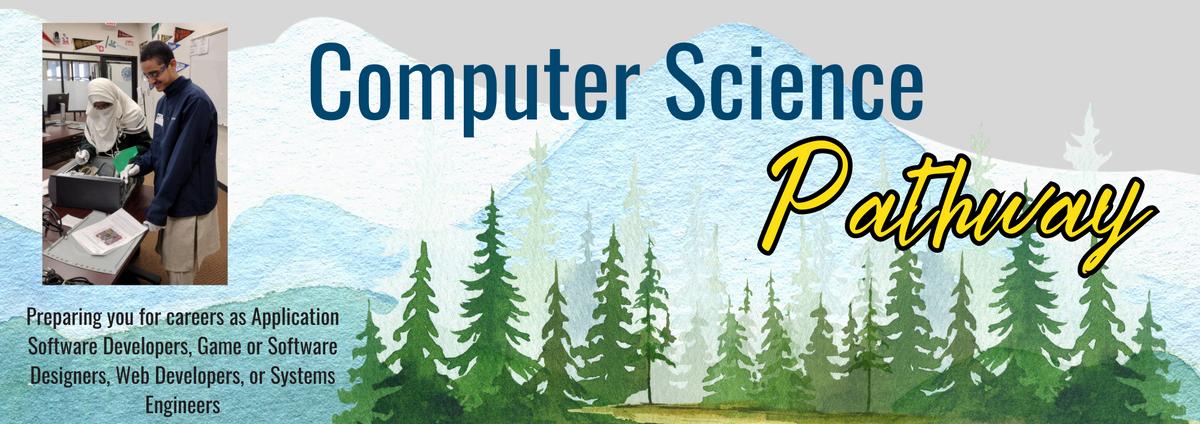
The Computer Science program is designed to address key skill sets preparing you for future certifications or college classes in Computer Science fields. The ASCEND program helps better prepare you for the rigor and responsibility of the workforce. As you move through your core classes, portfolio work will be addressing goals of the Computer Science program and allows you to learn skills needed to succeed in this field of study. The focus will be on Computer Science principles such as software programming languages, hardware, and team building skills that will be relevant to your success after high school!
You might love a career in the Computer Science field if:
You are detail-oriented.
You like learning new languages.
You are always interested in the newest technology.
You are creative.
You like problem solving.
At first you don’t succeed, you try and try again.
Examples of degrees that ASCEND graduates can pursue after High School:
Computer Programming
System Administration & Network
Security
Web Development
Computer Science
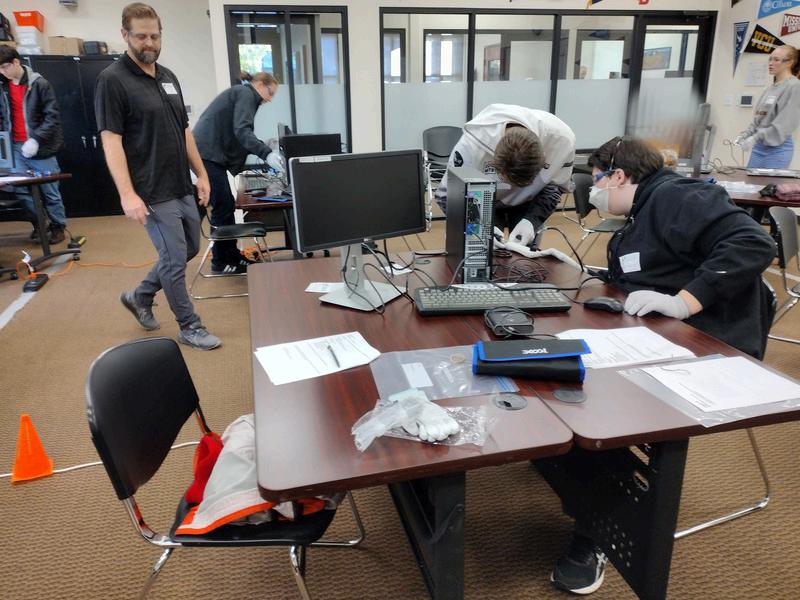
Examples of possible careers that ASCEND graduates can pursue:
Game Designer
IT Support Specialist
Animation Design/Programmer
Robotics
Programmer/Engineer

Grade:
Credits:
Prerequisites: 9, 10, 11, 12
0.5/0.5
None
Sem(s) Offered: Fall/Spring
Other Info:
A - This year-long course explores the creative, technical and conceptual aspects of designing and producing interactive game experiences and products. Topics may include: aesthetic meaning; artistic, design and technical methods and practices. Establishing basics concepts of game construction and development, game theory and dynamics; analysis and media literacy; construction, development, processing, modeling, and programming of game-based experiences; their transmission, distribution, placement and marketing; and contextual, cultural and historical aspects and considerations.
B - This is the 2nd part of a year-long course that will continue to establish the creative, technical, and conceptual aspects of designing and producing interactive game experiences and products. Students will gain experiences with development using Construct3 which will prepare for future game development environments, terminology, or courses.


Grade:
Credits:
Prerequisites: 9, 10, 11, 12
0.5/0.5
Concurrently in Alg 1B or instructor approval
Sem(s) Offered: Fall/Spring
Other Info:
A — This is a year long course. Students will be Introduced to foundational skills of Computer Science, you will explore the role technology plays in our lives as well as study the fundamentals of computer science, review hardware and software, and learn how the internet functions. Establishing what computer science is and basics in python programming language.
B - The second part of this computer science course cultivates your understanding of programming and expands on your knowledge of website development. Learn the difference between web development and web application development as well as further practice Python Programming. You will also examine software engineering concepts, learn more about security, privacy, and ethics in technology.
Grade:
Credits:
Prerequisites: 9, 10, 11, 12 0.5
None
Sem(s) Offered: Spring
Other Info:
Students will start a journey toward mastering three essential development tools: HTML, CSS, and JavaScript Learning about the key components to create a web page Your final project will be utilizing these skills to develop your own web page
Grade:
Credits:
Prerequisites: 9, 10, 11, 12
0.5/0.5
Computer Science 1B
Sem(s) Offered: Fall/Spring
Other Info:
College Credit Available
A - This is a year long course which is an application programming class enhancing basic computer programming skills, design, planning and implementation learning the python programming language. Students will be able to work on collaborative projects and labs that create the relationship between hardware and python programming.
B - Continuing python programming class A enhancing basic computer to intermediate programming skills, design, planning, and implementation. Learning that python programming as it applies to dictionaries, objects, tuples, and databases.
Grade:
Credits:
Prerequisites: 11, 12 0.5
Comp Sci 1A/B, Python and/or Cybersecurity
Sem(s) Offered: Fall
Other Info:
IT Fundamentals will establish the knowledge and skills required to identify and explain the basics of computing, infrastructure, software development, and database use. The class also covers IT concepts including identifying and explaining computer components, software, network connectivity and preventing security risks. Industry Certification can be obtained at the end through TestOut.
Grade:
Credits:
Prerequisites: 10, 11, 12
0.5/0.5
English 9, Comp Sci 1B
Sem(s) Offered: Fall/Spring
Other Info:
A This is a year long course. You will learn about the various parts of your computer, how they work together, and how you can manipulate them to keep your data safe. You’ll also dive into the tools, technologies, and methods that will help protect you from an attack and discover the many opportunities in the rapidly growing field of cybersecurity. Course focuses on networking terminology, concepts, and security. Students will work on technical and informational communication writing.
B This is the second half of a year long course. You will continue to learn about the various parts, networking, and the computer, how they work together, and how you can manipulate them to keep your data safe. You’ll also dive into the tools, technologies, and methods that will help protect you from an attack and discover the many opportunities in the rapidly growing field of cybersecurity.
Grade:
Credits:
Prerequisites: 11, 12 0.5
IT Fundamentals
Sem(s) Offered: Spring
Other Info:
This is the final course in the ASCEND Computer Science pathway series. Students will have the opportunity to apply Computer Science IT skills from their CTE pathway courses. Working on IT industry technical experiences The opportunity to enhance skills through experiences utilizing and learning employability skills while preparing students for post-high school pursuits

Prior to becoming a teacher, Mrs. Hay spent 15 years with the Army Corp of Engineers working in IT. She knows how invaluable practical experience is to anyone's career. Problem solving, professional skills and communication are essential in any job. She started as a summer hire IT technician in her senior year of high school. From there she networked and was able to obtain an internship, which lead to a position. Over time she became the IT manager of the overseeing hardware, software, networking and web design staff. All this wouldn't have been possible without the experience gained early on. Paying it forward, Catherine decided to help at local schools and help students see the different career possibilities Computer Science has to offer.
Blending her career with her teaching experience she enjoys helping students set a path to pursue their career goals in information technology through college or certification. By establishing a computer science pathway of relevant classes, computer labs, certifications and experiences, students gain industry knowledge of 21st Century professional skills for any job and are exposed to the different IT study paths. Mrs. Hay strives to improve computer science throughout related to Oregon Career Techncial Education programs and has served on the Oregon Department of Education Consultant group in 23-24 to establish a Computer State Wide Plan for K-12 education bring computer science to all.
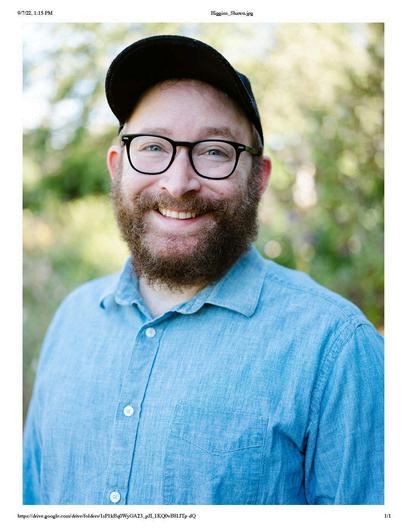
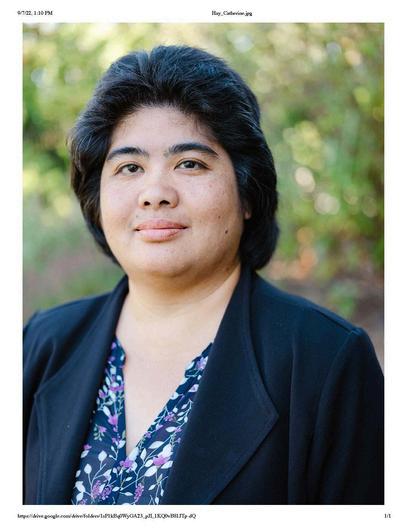
I believe that Computer Science and Media Arts are the keystone to every student's future success, and I'm excited to have the opportunity to show you all the ways creative digital making can empower you! I've got 15 years experience
teaching video, digital art, graphic design and audio, and 10 of those teaching creative coding with a focus on animation, motion graphics and game making. I've worked extensively with the Scratch, ScratchEd, and Processing teams, and have tons of connections to the indie gaming community in Oregon and beyond. I'm super excited to help you in your creative making journey, connect you to those who share your passions, and to see all the great things you’ll be able to make!
I love learning about and teaching STEM topics (science, technology, engineering, and math). Teaching middle-school and high-school since 2011, with a focus on math and computer programming, I am excited to be part of ORCA’s ASCEND team and see where it will take us! Prior
to teaching, I spent ten years flying helicopters in the US Army and managing military personnel and assets, so I have a lot of real-world experience administering avionics systems, hardware and networks, and many technical software applications. Over the years, I have earned both a B.S and a Masters in Engineering in Computer Science with a focus on interface program design, along with another Master’s degree in Geology & Geophysics, and continue to take graduate courses every year to keep my learning skills fresh. In my free time I like to play sports and computer games, coach, fish, and travel with family. I also joke around a lot. Recommend your favorite game, book or movie to me!

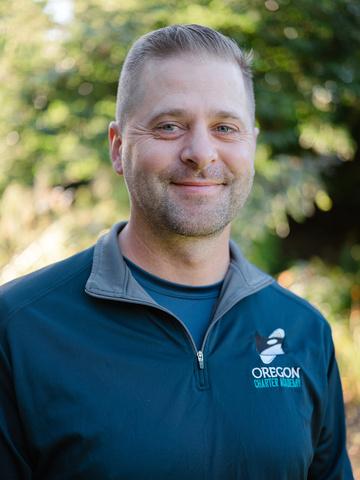
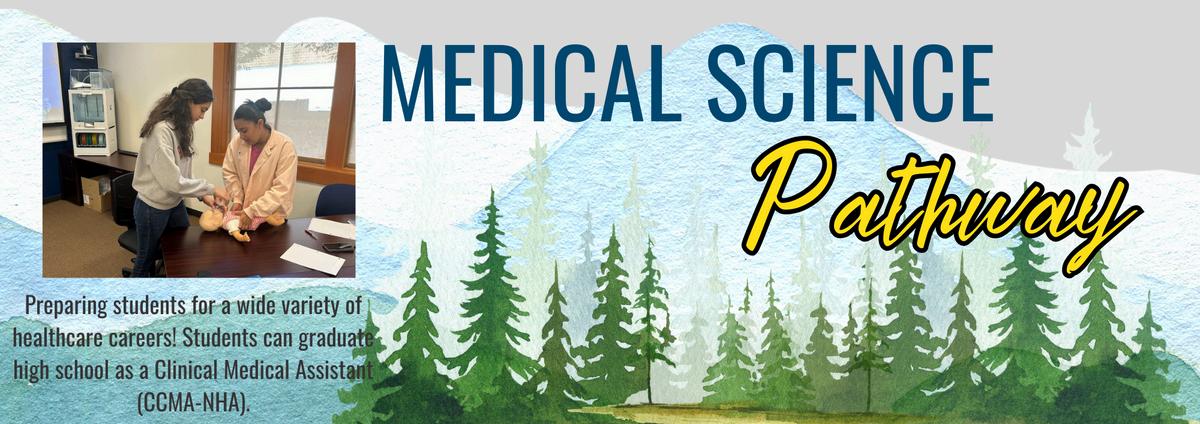
Medical Science Pathway students will leave high school well prepared to enter a variety of healthcare careers. Students who complete this pathway often use their newfound healthcare knowledge and experience in one of two main ways: 1) Student may choose to go straight into the healthcare workforce as a CCMA-NHA right after high school, or 2) Students may leverage their coursework, internship experience and healthcare certifications to gain acceptance into competitive future healthcare training opportunities. In ASCEND we value both of these options equally. Thus, this program is built to be foundational to a myriad of healthcare career choices, such as phlebotomist, EKG technician, physical therapist, nurse or even physician. We encourage anyone interested in a career in healthcare to come learn and explore with us
During their coursework, Medical Sciences Pathway students will learn about human diseases, disorders, diagnostic tests and treatments; how to ethically and professionally act in a variety of healthcare settings; how to perform and interpret routine medical exams; how to don and doff personal protective equipment; and how to perform CPR/AED/First Aid. On top of this coursework, students will have numerous opportunities to visit local clinics for tours, talk to healthcare professionals during synchronous video lessons, and learn about a wide-variety of healthcare career choices.
You might love a career in the Medical Science field if:
You enjoy helping people.
You are interested in job stability and growth
You want to be able to live or work anywhere in the United States
You are motivated to succeed
You enjoy collaborating

You are comfortable in a fastpaced setting
You like learning about how things work
You want to be a lifelong learner
You would like to build customer service skills
You are detail-oriented

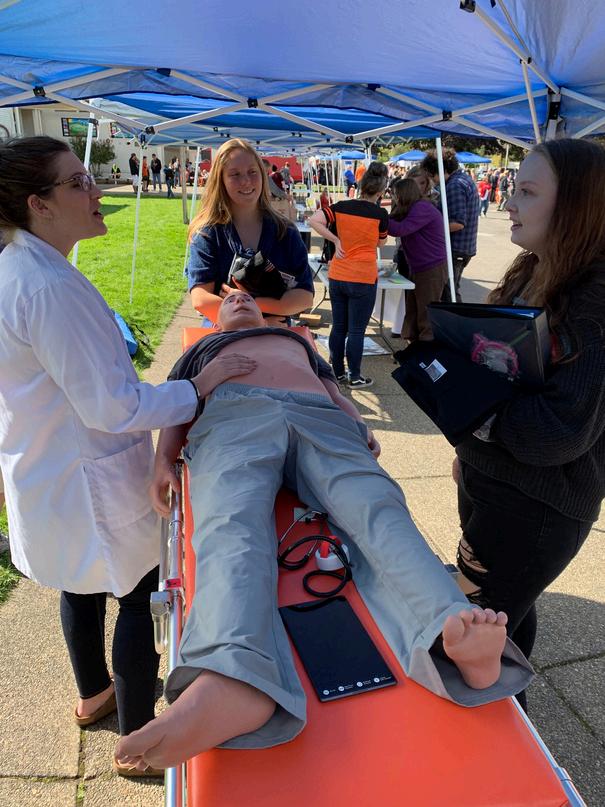
Certificates: Phlebotomy Technician, EKG Technician, Cardiographic Technician, Telemetry Monitor Technician, Medical Billing and Coding Specialist, or Dental Assistant.
Associate degrees: Health Administration, Nursing, Occupational Therapy, Respiratory Technology, Diagnostic Medical Sonography, or Cardiovascular technology
Bachelor degrees: Nursing, Biology or Pre-Med
Master degrees: Master of Science in Nursing "MSN), Master of Public Health, Master of Health Administration or Master of Science
Healthcare Management
Terminal degrees: Doctorate Degree in Nursing (DNP), PhD in Nursing, Medical Degree (MD), PhD in Healthcare Administration, or PhD in Biomedical Research.
Examples of possible careers that ASCEND graduates can pursue:
Medical Assistant
Phlebotomy Technician
Emergency Medical Technicians (EMT) & Paramedic
EKG Technician
Cardiographic Technician
Telemetry Monitor Technician
Medical Billing and Coding Specialist
Dental Assistant
Neurodiagnostic Technician
Diagnostic Cardiac Sonographer
Cath Lab Technician
Medical Front Office Administration
Specialist
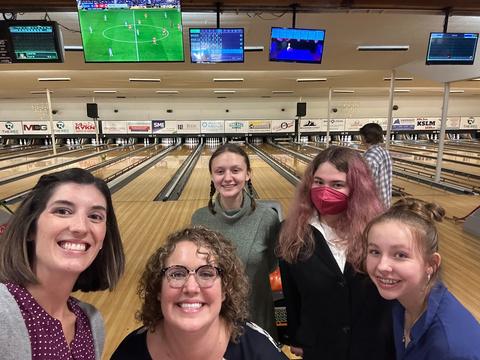
DID YOU KNOW?
ASCEND Medical Science graduates have many degree and certification options completing high school. Some examples include: The Certified Medical Assistant training program through Lane Community College costs around $12,000 to complete. But the ASCEND CCMA program is FREE for ORCA students.

Behaviorial Technician Specialist
Vascular Technician
Respiratory Therapist
Radiologic Technician
Occupational Therapist
Athletic Trainer
Nursing
Biomedical Researcher
Healthcare Administrator
Informaticist
Epidemiologist
Genetic Counselor
Physician
Grade:
Credits:
Prerequisites: 9, 10, 11, 12
0.5
None
Sem(s) Offered: Spring
Other Info:
What is public health? Who decides which diseases get funding and which do not? What are the reasons for health inequality? Study both infectious and non-communicable diseases as well as learn how we conquer these on a community and global level through various methods, including proper hygiene, sanitation, and nutrition. Explore the role of worldwide current and future technologies and the ethics and governance of health on a global scale, and discover unique career opportunities you can pursue to make a difference.
Grade:
Credits:
Prerequisites: 10, 11, 12
0.5
HS Ed 1 or Intro to Public Health
Sem(s) Offered: Fall of 24-25
Other Info:
This course introduces students to the historical crimes that lead to the creation of formal bioethic codes, including The Nuremberg Code and The Belmont Report. Students will read these codes and learn how to apply the four principles of bioethics beneficence, nonmaleficence, justice and autonomy to a variety of clinical case studies. We will also discuss legal and professional rights and responsibilities within healthcare settings. Other topics include tort law, HIPAA, Medicare, Medicaid and the Affordable Care Act.
Grade:
Credits:
Prerequisites: 9, 10, 11, 12 0.5/0.5
None
Sem(s) Offered: Fall/Spring
Other Info:
This introductory course presents information and terminology for health science careers. This course will focus on healthcare systems and delivery, safety and infection control, and disease classification.
1B - this course will focus on health and wellness, first aid, professional communication, and documentation.
Other Info:
Grade:
Credits:
Prerequisites: 10, 11, 12
0.5
Health Sci Ed 1 or Intro to PH
Sem(s) Offered: Spring
Other Info:
Survey of medical and health-related occupations, including biomedical sciences. Discussion of health care structure, private and public entities, the research community and trends in health education and practice.

Grade:
Credits:
Prerequisites: 10, 11, 12
0.5/0.5
HS Ed 1 or Intro to PH
Sem(s) Offered: Fall/Spring
Other Info:
College Credit Available
In this course, students will learn the meaning of medical terms by learning how to break down medical words into their prefixes, suffixes, and roots. This class is ordered by body systems. Students will learn about human diseases, diagnostic tools and treatments as they relate to each body system
A - This term will cover the skeletal system, muscular system; nervous system; blood, lymphatic and immune systems and cardiovascular system
B - This term will cover the respiratory system, digestive system, special senses (eyes and ears), endocrine system, urinary system and reproductive systems.
Grade:
Credits:
Prerequisites: 11, 12
0.5/0.5
Grade:
Credits:
Prerequisites: 11, 12
0.5/0.5
None
Sem(s) Offered: Fall/Spring
Other Info:
College Credit Available
This year-long course introduces students to basic anatomy and physiology of animals with an emphasis on humans. Focus is placed on tissues, organs, organ systems, and how they function together to maintain human health. This course introduces students to the integration of human body systems and factors that influence human homeostasis. The systems covered in Part A systems covered include the integumentary, circulatory, respiratory, digestive and excretory Systems
The systems covered in Part B include the endocrine, nervous, skeletal, muscular, immune and reproductive systems
Health Science 1A/B
Sem(s) Offered: Fall/Spring
Other Info:
Fall - This year long course teaches that It takes a strong team to offer top-notch patient care, and each team member plays an integral role. Are you a team player interested in coordinating patient care? Then a career as a medical assistant may be right for you! In this course, you will acquire medical terminology, investigate anatomy and physiology, learn keys to professionalism in an office setting, and explore office roles while building a professional portfolio. Let’s learn what it takes to fill the important shoes of a medical assistant today!
Spring - You’ve pulled back the patient curtain and learned the basics of the world of a medical assistant. Now, it’s time to dig deeper and peer into the anatomy of the role so you can determine which medical assistant best suits you. In this course, you will learn more about patient care and procedures, testing and care coordination, pharmacology, safety, reimbursement, and the law. You will narrow your areas of interest, research organizations to shadow, and ultimately prepare for certification. Throw that curtain wide open, and let’s continue the pursuit of a medical assistant!

Grade:
Credits:
Prerequisites: 12 0.5
Health Science 2
Sem(s) Offered: Fall
Other Info:
This class prepares students to sit for and pass the 150-question CCMA-NHA exam to become Certified Clinical Medical Assistants. This is a review class, where students will work to master material from past courses including Medical Terminology, Medical Law & Ethics, Health Science Education 1, and Health Science Education 2 using NHA’s online study material Students will also have the opportunity to take three full-length practice exams in this class A must if you plan to sit for the CCMA exam
HS Ed 1 or Intro to Public Health
Sem(s) Offered: Fall
Other Info:
CEHRS is a certification that validates a health care professional's baseline knowledge and understanding of electronic health records (EHR), and why what they do in the EHR can have a significant impact on patient safety outcomes, reducing errors, and ultimately increase revenue.
Credits:
Prerequisites: 12 0.5 Med Assist. Prep or EHR Spec Prep
Sem(s) Offered: Spring
Other Info:
This class guides and supports Medical Science ASCEND Seniors through their Medical Science Work-Based Learning or Capstone projects. This class is focused on real-life experiences and project-based learning. This class is highly individualized, with student’s goals and expectations being cooperatively set by the student, teacher and Work-Based Learning host(s).
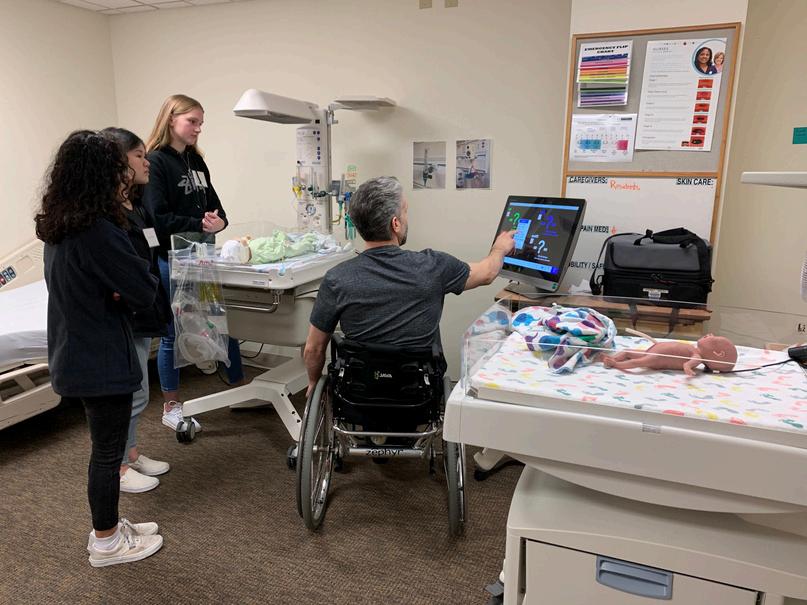

DID YOU KNOW?
The Certified Clinical Medical Technician costs approximately $12,000 at a community college and the ASCEND program offers it for free. You can graduate and make over $40,000 right out of high school.
Dr. Elizabeth “Beth” Washak, DC has a Bachelor’s in Science and a Doctorate in Chiropractic from Palmer College of Chiropractic. Dr. Washak worked as a CNA through college and in chiropractic for over ten years rising to the level of clinical director of her own practice. She has extensive experience in patient care and education, medical coding and billing, medical annotation and is a certified BLS instructor through the American Heart Association (AHA)
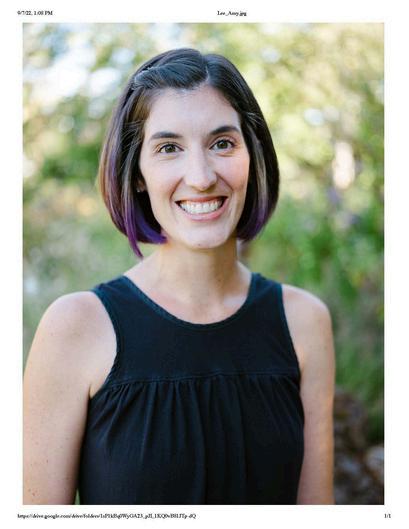
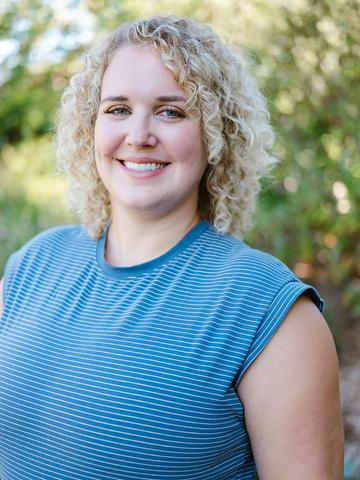
Mrs. Lee began her career as an athletic trainer after graduating from Oregon State University. While managing a physical therapy clinic, she went back to school to become a licensed massage therapist. After a few years, she began teaching massage therapy classes and discovered her love for teaching. Mrs. Lee recently completed her Master of Education degree through Grand Canyon University. She is excited to share her knowledge about the amazing human body, her personal experiences, and all the ways to be involved in the healthcare field with her students!
Your teacher: Mrs. Kellen Sherwood ksherwood@oregoncharter.org
Mrs. Sherwood has loved learning for as long as she can remember, and developed an interest in science and heath in high school. After graduating from University of California, Irvine with a Bachelor of Arts in Philosophy and a Bachelor of Science in Biological Sciences, she became certified as an Emergency Medical Technician (EMT) to gain experience in the medical field. Mrs. Sherwood ended up taking a job as a Medical Assistant instead, working in that role for five years. Along the way, her passion for education was rekindled and she went back to school to complete a Master of Arts in Teaching degree (MAT) at George Fox University. Mrs. Sherwood is excited to combine these areas of interest, and help students discover their own paths toward fulfilling careers.

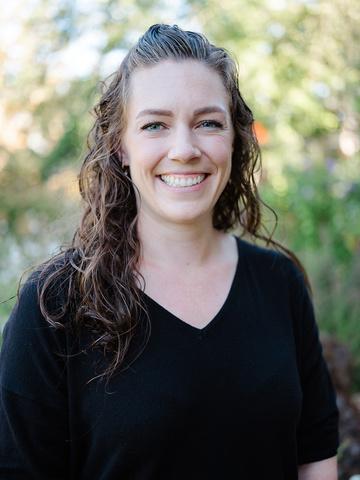
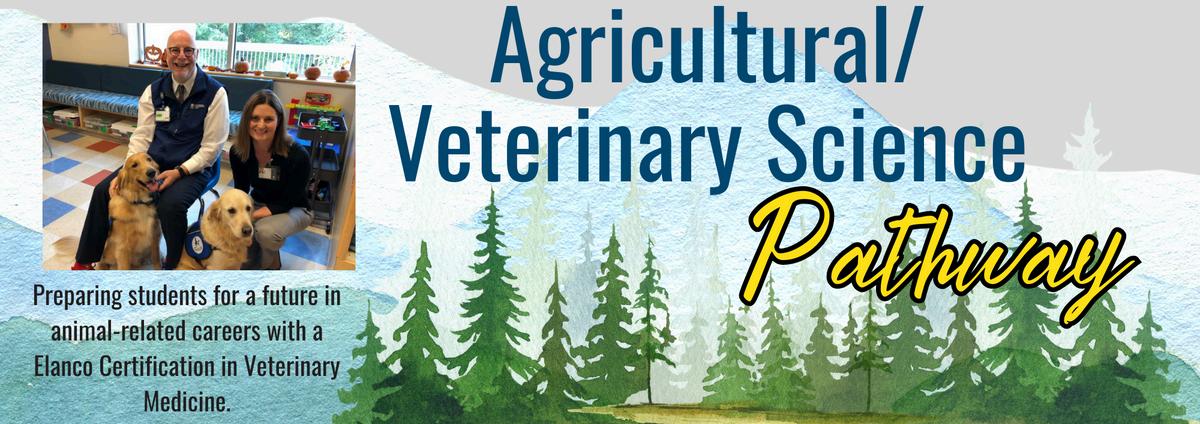
Ever wanted to work with animals? Don’t think it’s a possibility? Students will learn that working with animals is not just playing with kittens and puppies. You will be introduced to diagnostic tests, diseases, treatments, cleaning, and hygiene. Students can learn what it takes to be successful as a veterinary assistant. As a part of ASCEND, you will also be exposed to personal growth topics such as professionalism, teamwork, record keeping, and time management.
ASCEND Animal Science students will take a variety of courses throughout their high school career. Students will also be required to complete a Animal Science Internship their senior year.
You might love a career in the Animal Science field if:
You love helping animals. You are detail-oriented, but can see the big picture as well. like finding solutions to problems. You have a strong work ethic. You like studying science.
Example of degrees that graduates can pursue after High School
Veterinary Technician Certification
Doctorate in Veterinary Medicine
Associates or Bachelor Degrees in Animal Science, Biology, and more!

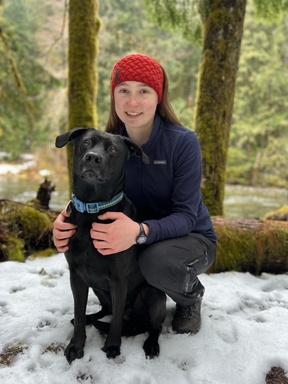

Example of possible careers that graduates can pursue: ASCEND
Veterinary Assistant/ Technician
Veterinarian
Animal Scientist
Laboratory Animal Technician
Zoologist or Wildlife
Biologist
Grade:
Credits:
Prerequisites: 9, 10, 11, 12 0.5
None
Sem(s) Offered: Fall
Other Info:
The Introduction to Animal Careers course will provide an in-depth look at the various careers available in the animal field Students will explore the career pathway and learn about the educational and work experience requirements and skills needed to be successful in these careers working with animals.
Grade:
Credits:
Prerequisites: 9, 10, 11, 12
0.5
None
Sem(s) Offered: Spring
Other Info:
The Animal Diseases and Parasites course will provide an overview of the diagnosis, symptoms, treatments and prevention of common animal diseases and parasites. Students will learn how physiological, nutritional and morphological defects, along with external variables, can affect animals and make them more susceptible to these diseases or parasites
Grade:
Credits:
Prerequisites: 9, 10, 11, 12 0.25
FFA Advisor Approval
Sem(s) Offered: Fall/Spring
Other Info:
Exploring leadership in the FFA is a fun class where students will learn about being leaders in the field of agriculture Students will have the opportunity to work on their supervised agriculture project, career development events and learn leadership skills
Grade:
Credits:
Prerequisites: 9, 10, 11, 12
0.5/0.5
None
Sem(s) Offered: Fall/Spring
Other Info:
The Animal Science series will help students begin to develop the skills necessary for employment in the animal science or veterinary medical industries. Some topics covered are breed identification, production management and Veterinary Assisting skills. Students in this series will gain the knowledge necessary to pursue entry level employment in a veterinary clinic, boarding, or grooming facility

Animal Science 2A/2B
Grade:
Credits:
Prerequisites: 10, 11, 12
0.5/0.5
Animal Science 1A/1B
Sem(s) Offered: FallSpring
Other Info:
In Animal Science 2 students will continue to develop skills necessary for employment in the Veterinary Medical industry Students will deepen their knowledge in this field by learning animal anatomy, physiology, animal handling, and clinic procedures Students will gain the knowledge needed to work toward employment in a veterinary clinic, boarding, or grooming facility.
"It’s not enough to love animals; we must actively protect and preserve them. It’s our duty and responsibility as custodians of this planet ” Daphne Sheldrick

Grade:
Credits:
Prerequisites: 12 0.5
Animal Science 1&2
Sem(s) Offered: Fall
Other Info:
This class guides and supports Animal Science ASCEND Seniors through their Veterinary Science Work-Based Learning or Capstone projects. This class is focused on real-life experiences and project-based learning. This class is highly individualized, with student’s goals and expectations being cooperatively set by the student, teacher, and Work-Based Learning host(s)
Grade:
Credits:
Prerequisites: 12 0.5
Animal Science WBL
Sem(s) Offered: Spring
Other Info:
This class prepares students to sit for and pass the 100-question exam to become an Elanco Certified Veterinary Medical Assistant This is a review class, where students will work to master material from past courses including Animal Science/Veterinary Assisting A and B Students will also have the opportunity to take multiple review assessments and two mini practice exams in this class. These are very important if you plan to sit for the Elanco exam.

The NAVTA Veterinary Assistant training program through Animal Behavior College costs $5,730 to complete, but the ASCEND Elanco Veterinary Medical Applications certification program is FREE for ORCA students. DID YOU KNOW?
jmorgan@oregoncharter org
Mrs. Morgan is the Agriculture Sciences pathway teacher. She started learning about the agriculutral and animal science industries in high school where she was very active in FFA (Future Farmers of America). After high school Mrs. Morgan earned her Bachelors Degree in Animal Science from Colorado State University. After college she worked as an Inside Sales representative for a veterinary supply company and then later as an inventory manager for a specialty veterinary hospital Mrs Morgan then
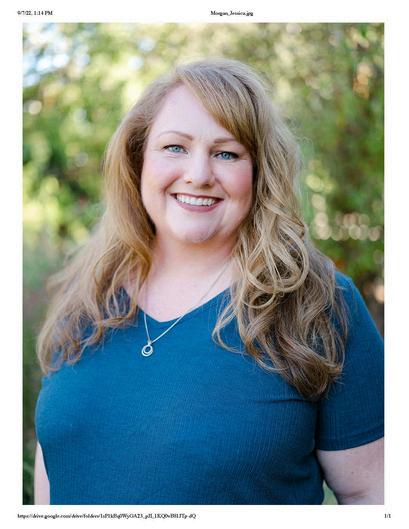
took several years off from working to start her family and decided to go back to school to become an Elementary School Teacher. She earned her teaching license and second Bachelors Degree from Western Governors University in Elementary Education. Her first teaching position was as a substitute teacher for ORCA. Mrs. Morgan realized after subbing in the Veterinary Science pathway that she really missed being a part of the agricultural world! Now she is excited to bring her love of animal science and agriulture to her students!






“WHEREVER THE ART OF MEDICINE IS LOVED, THERE IS ALSO A LOVE OF HUMANITY. “ Hippocrates



